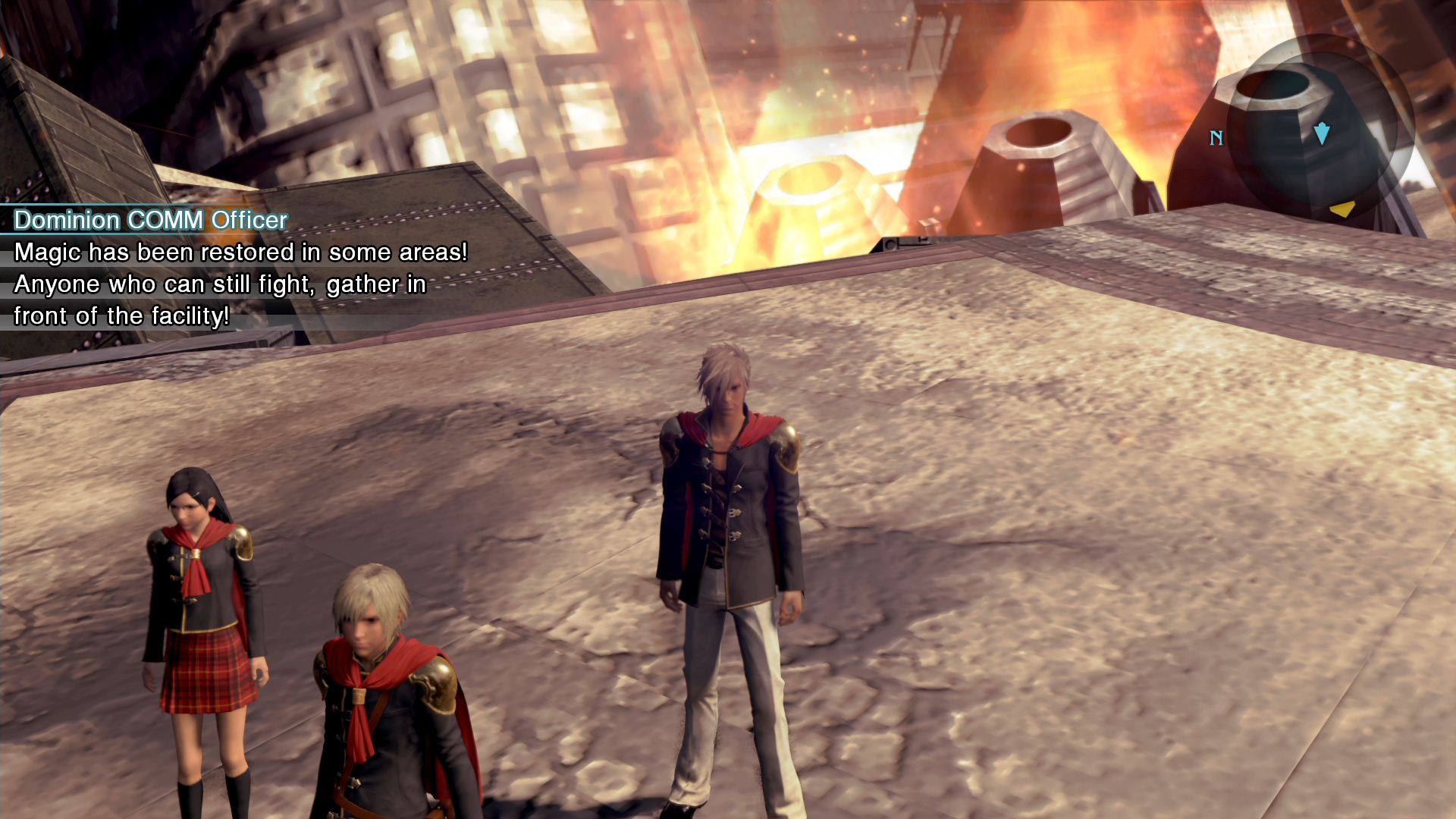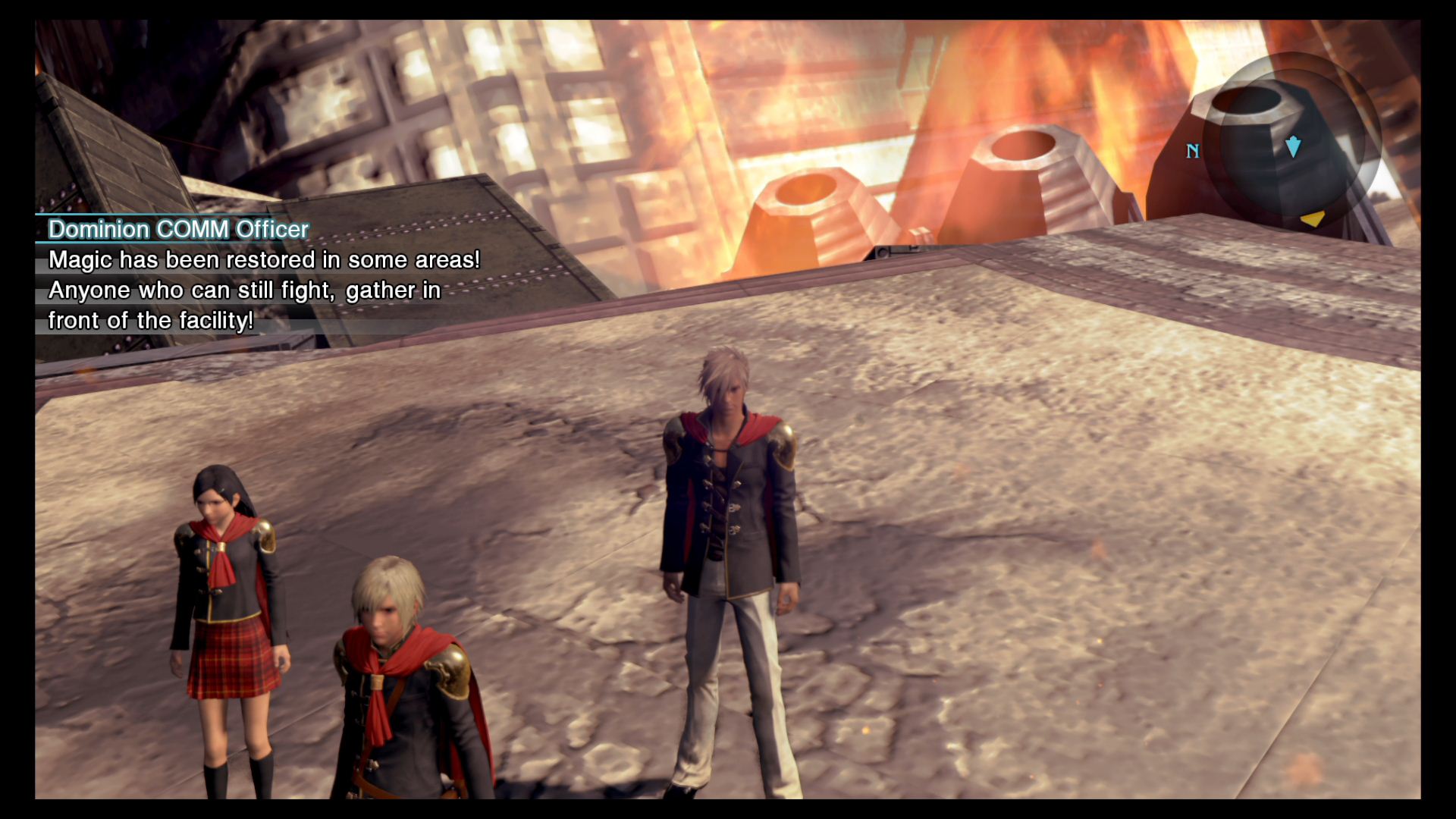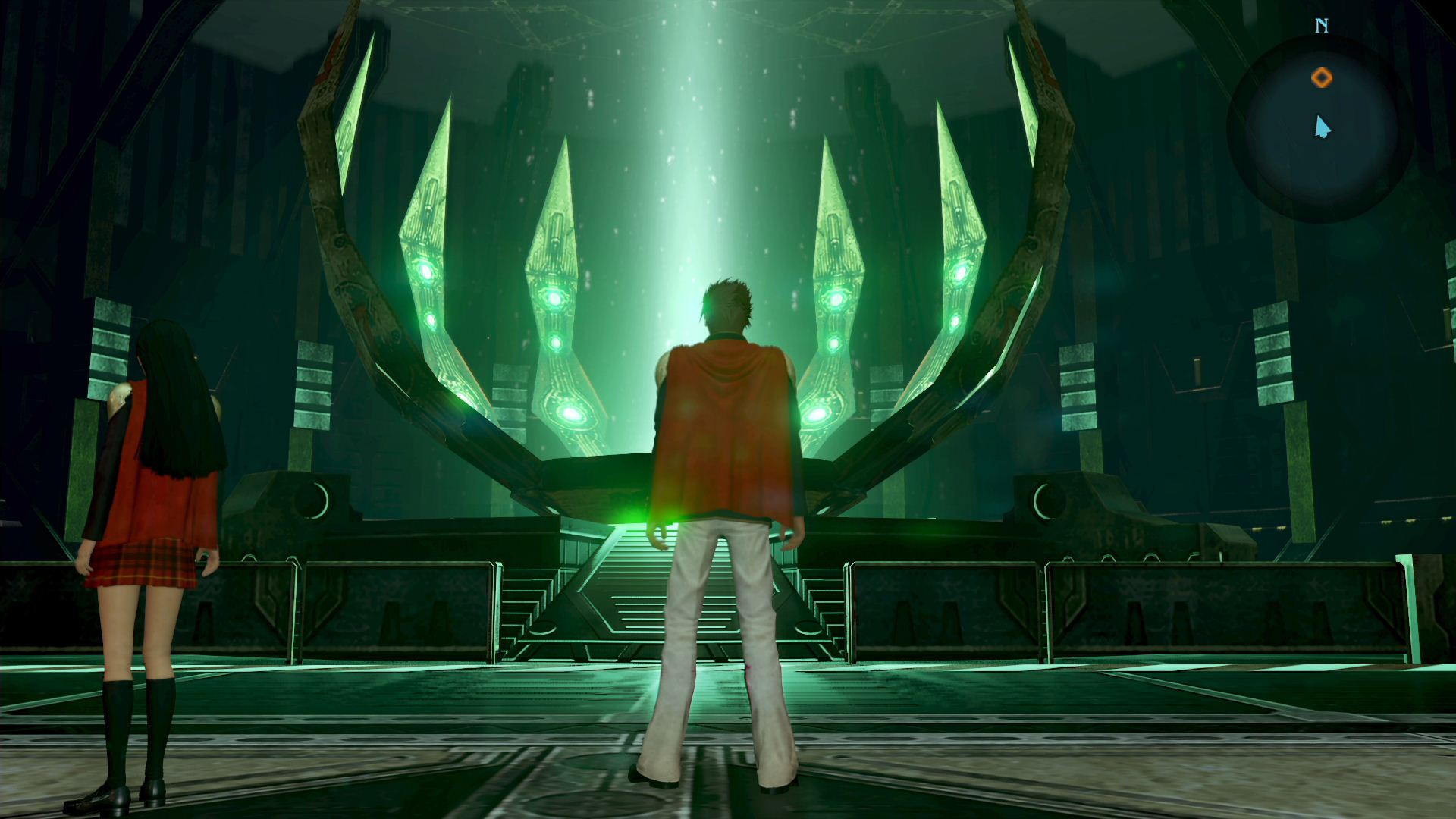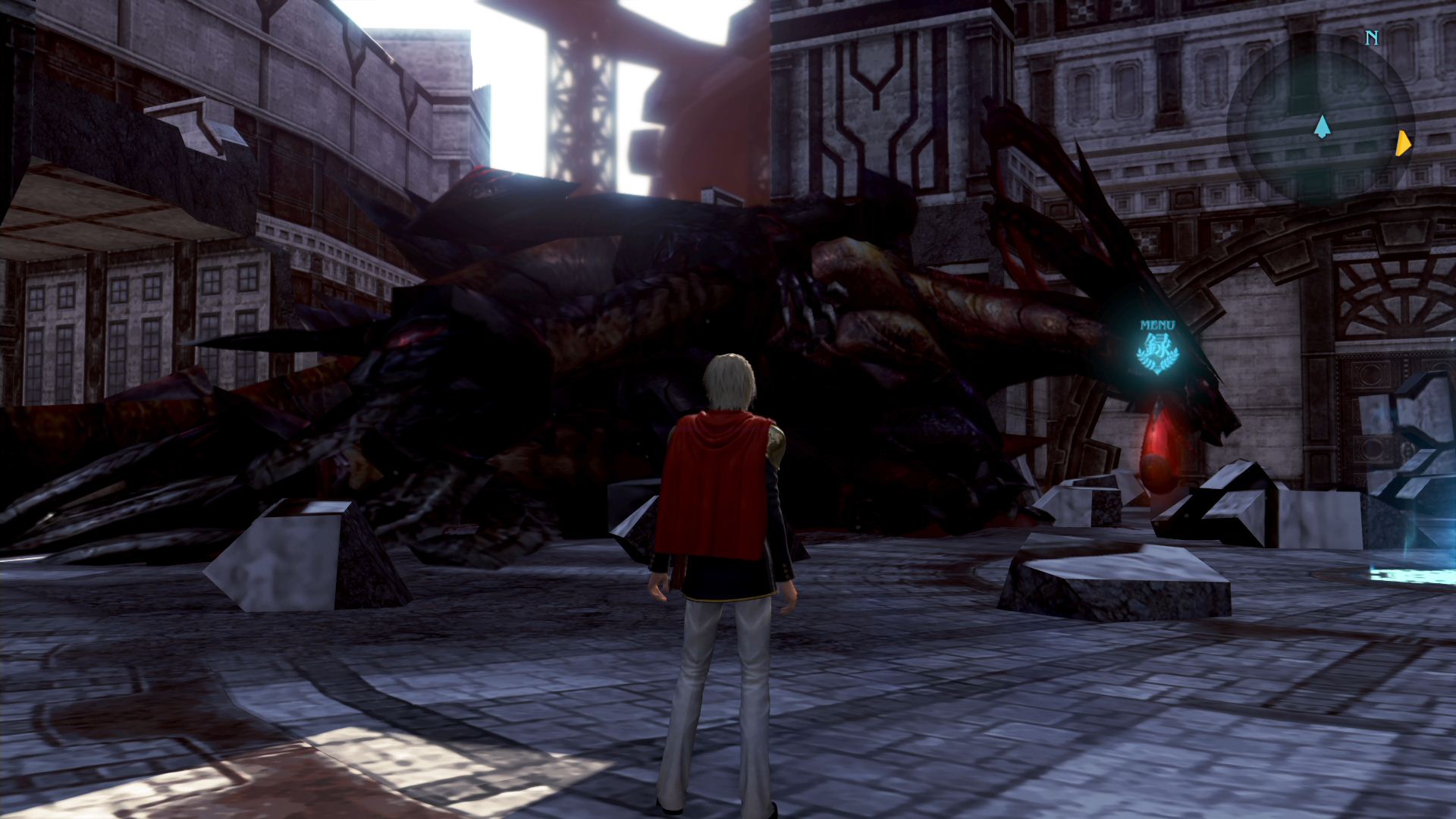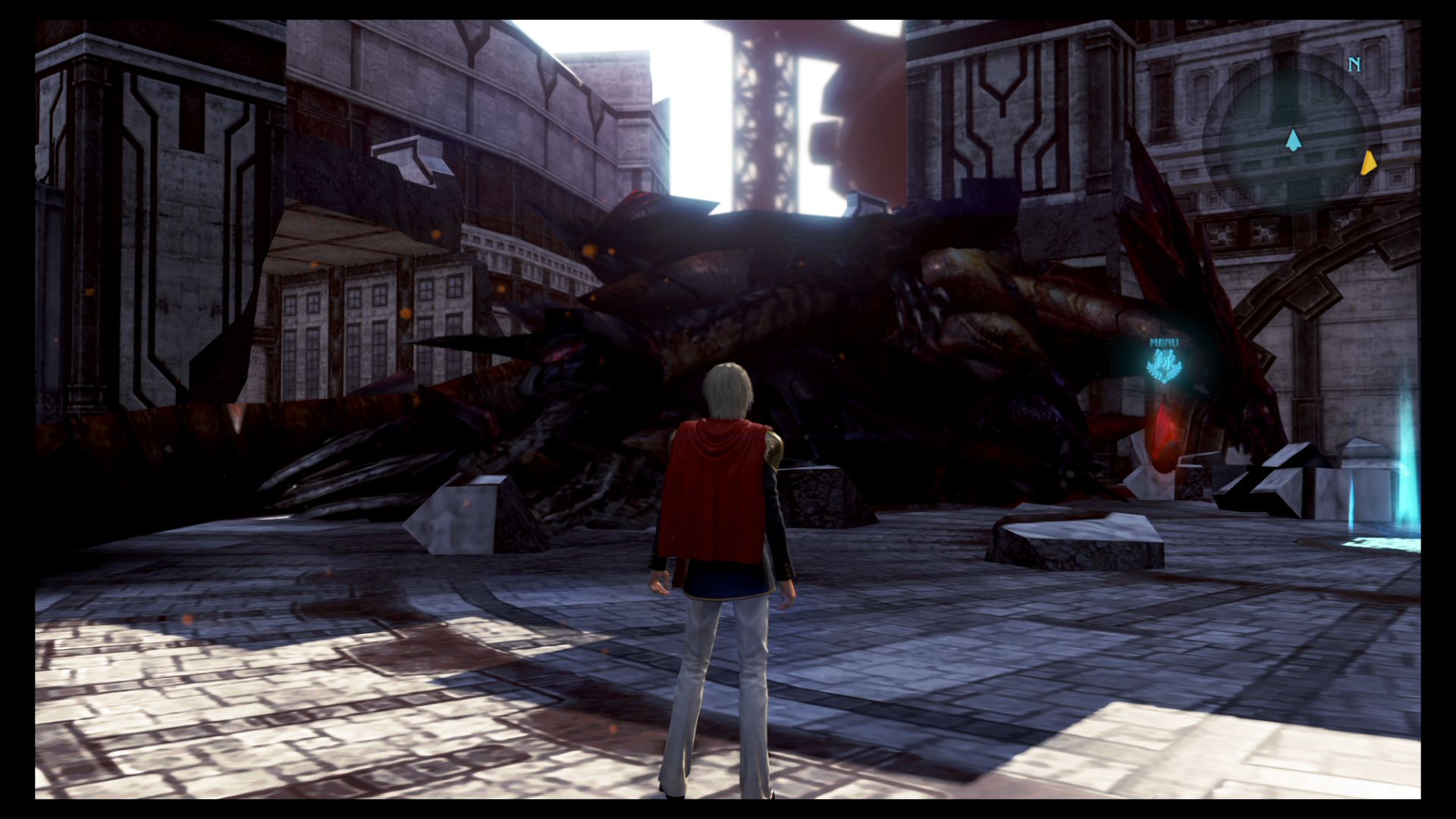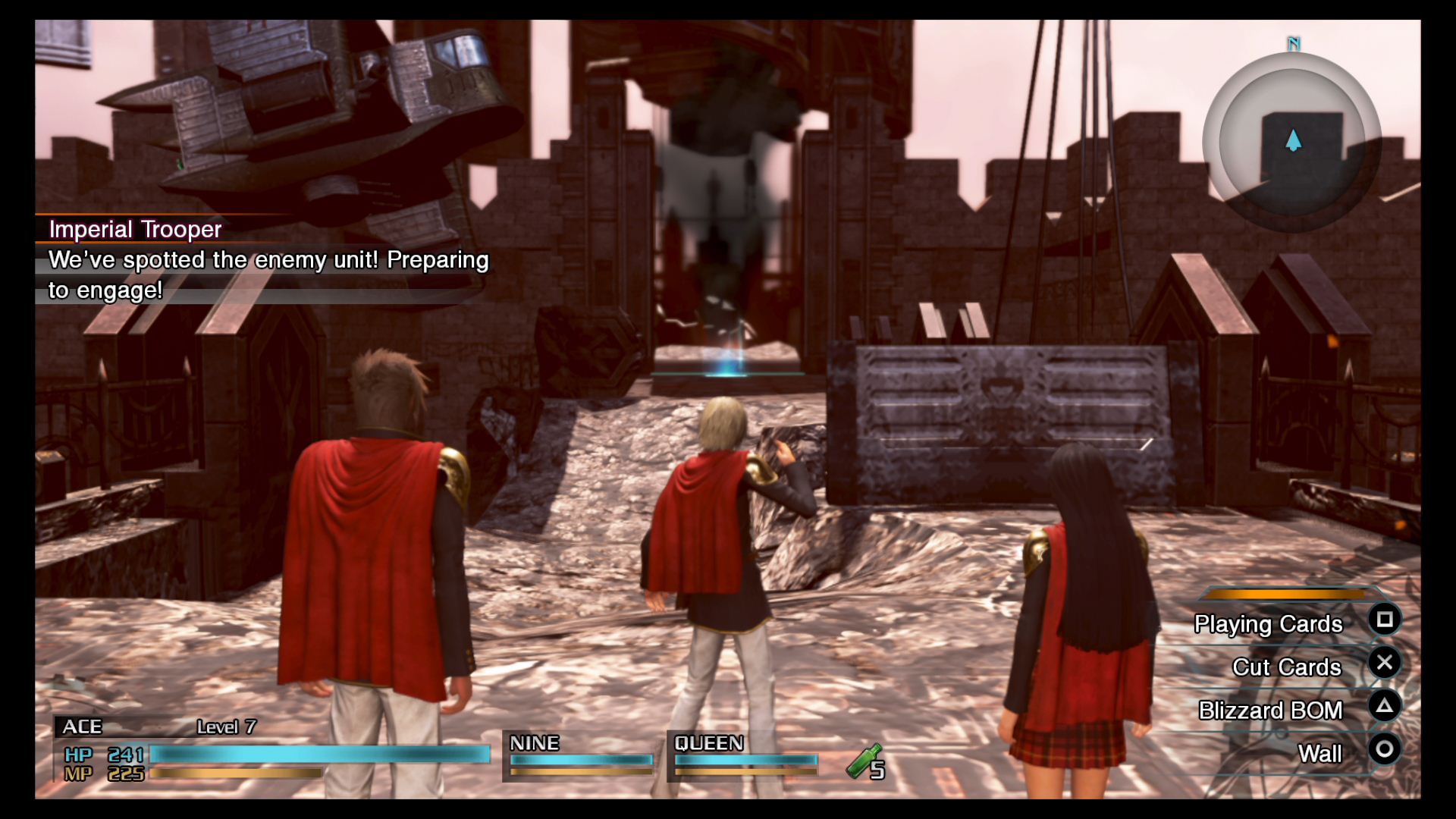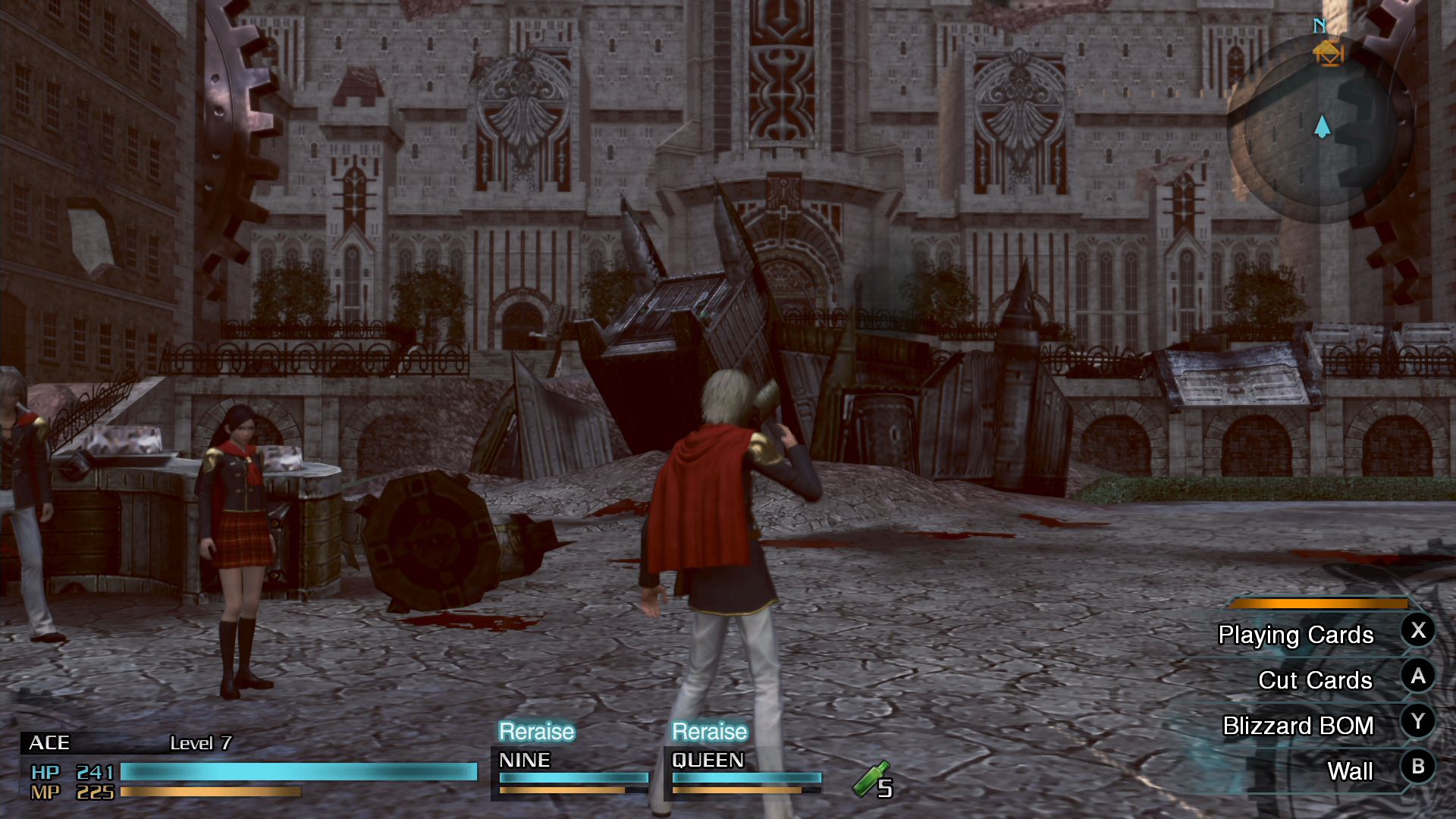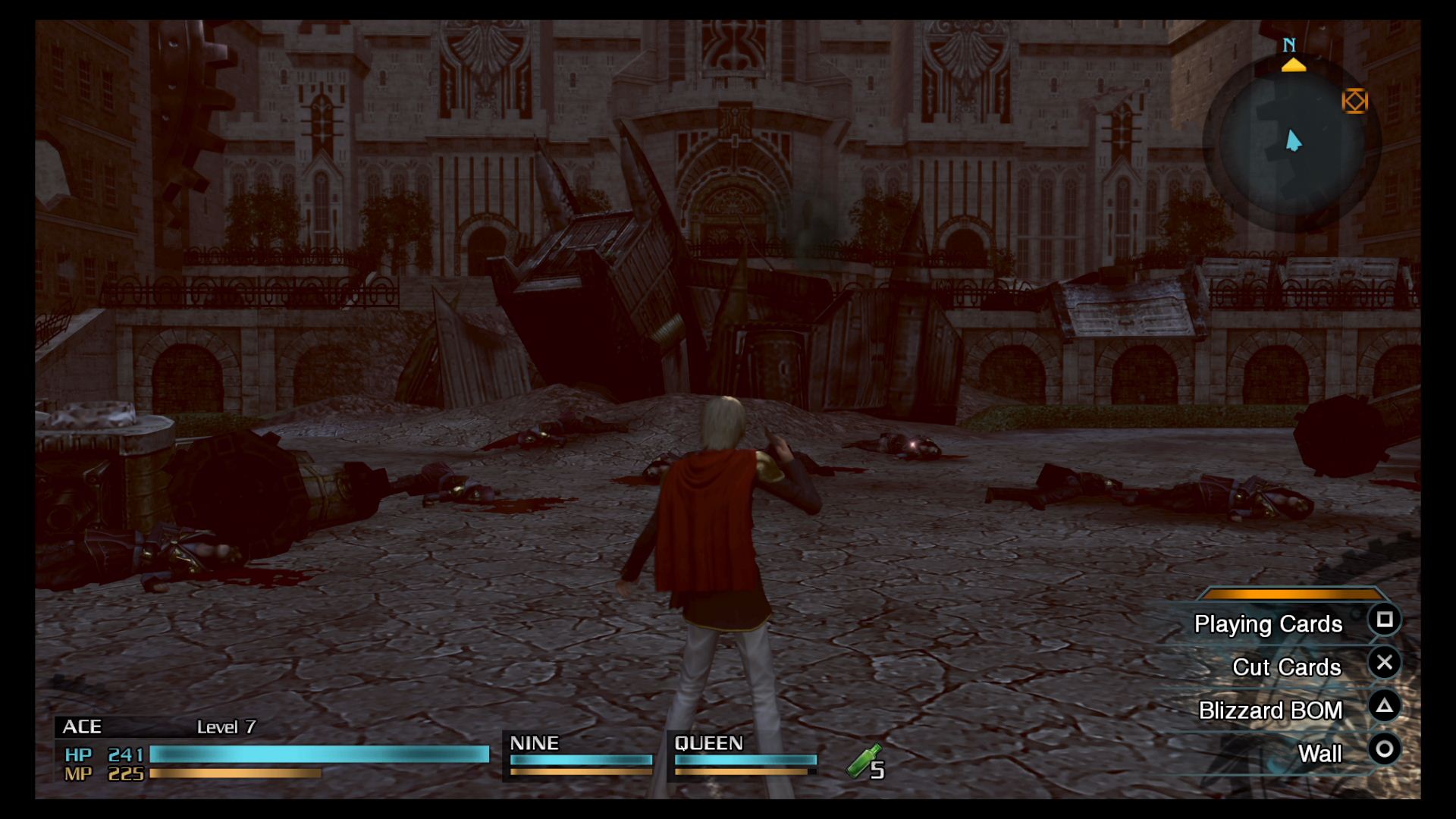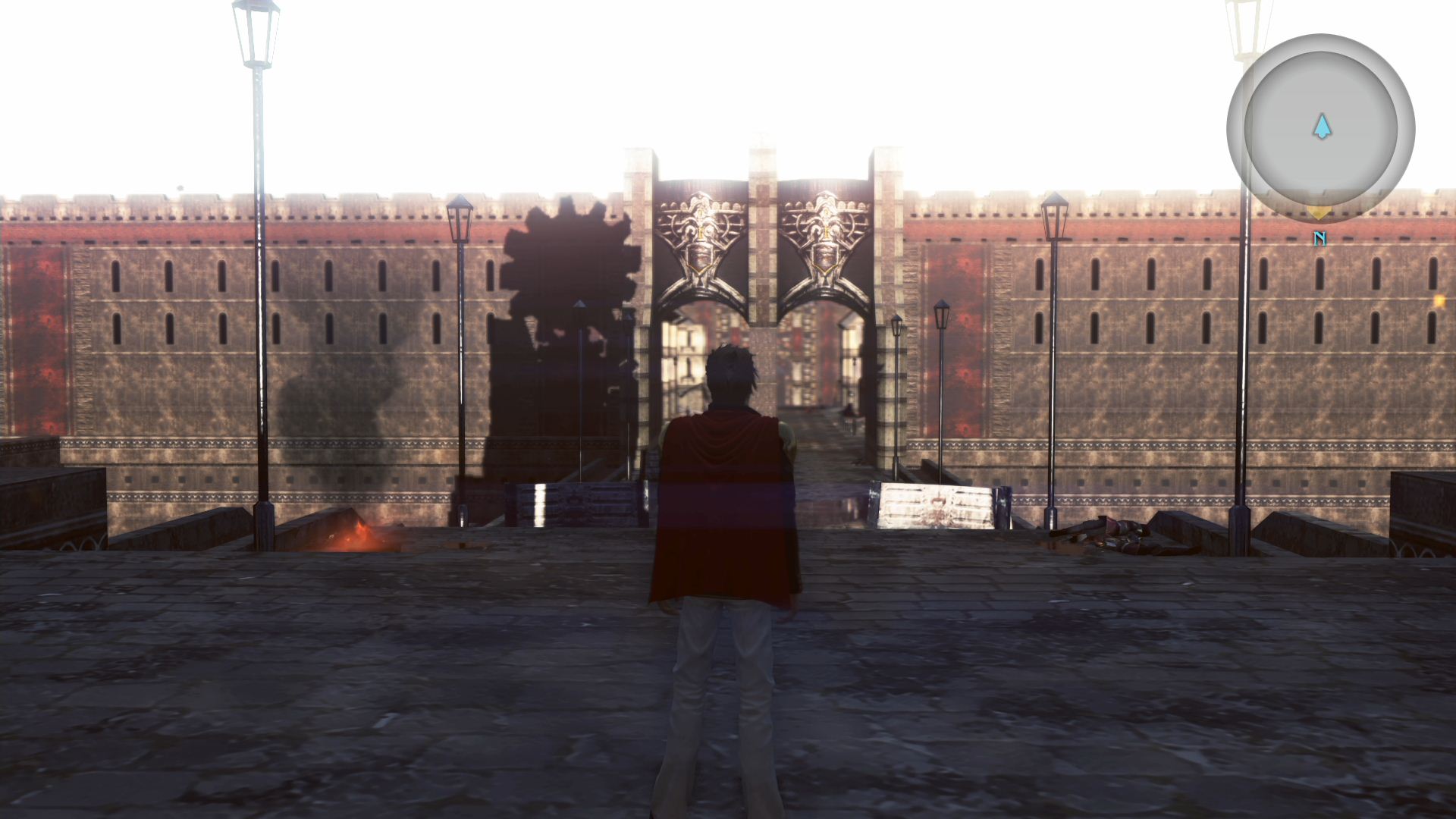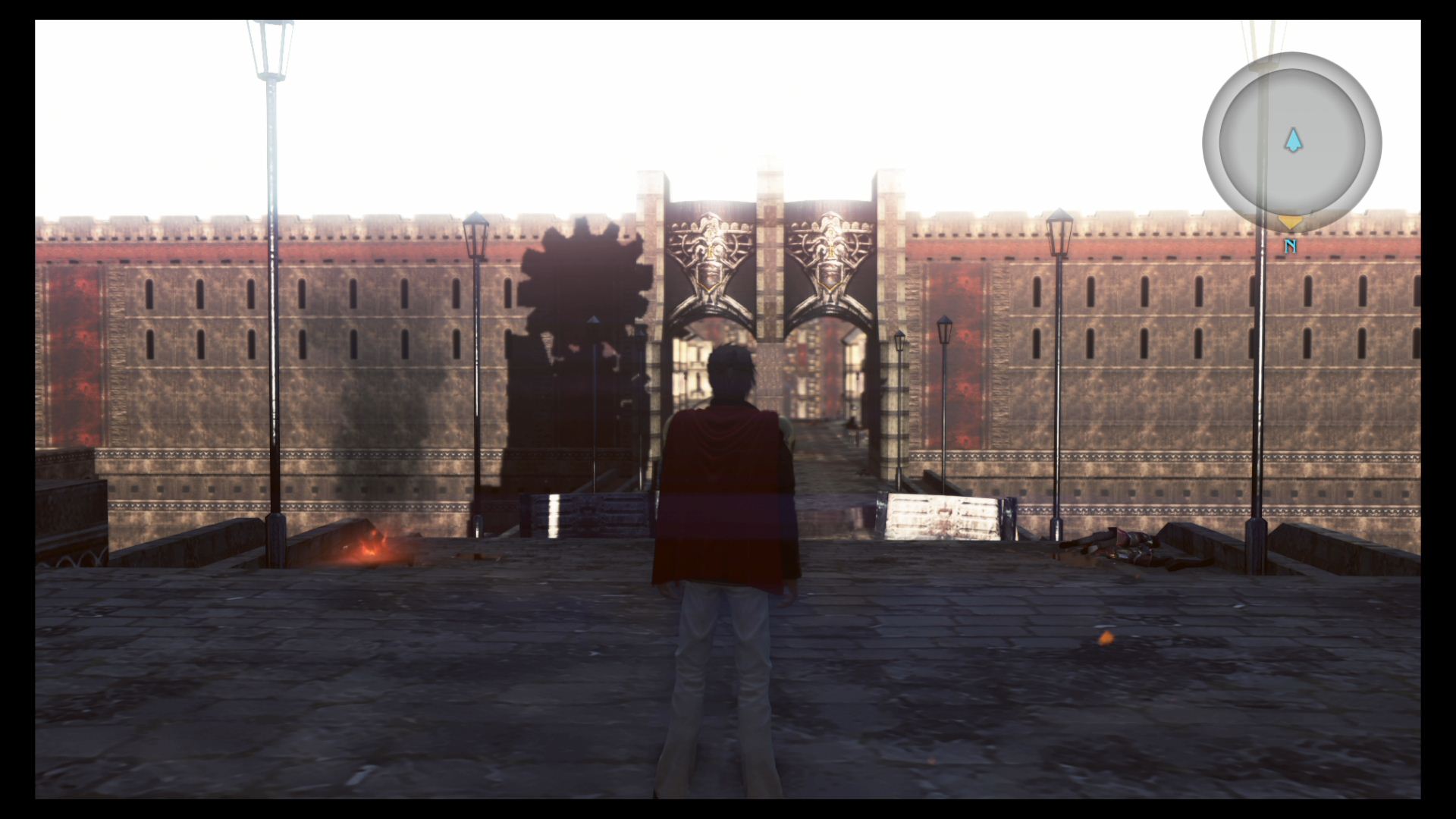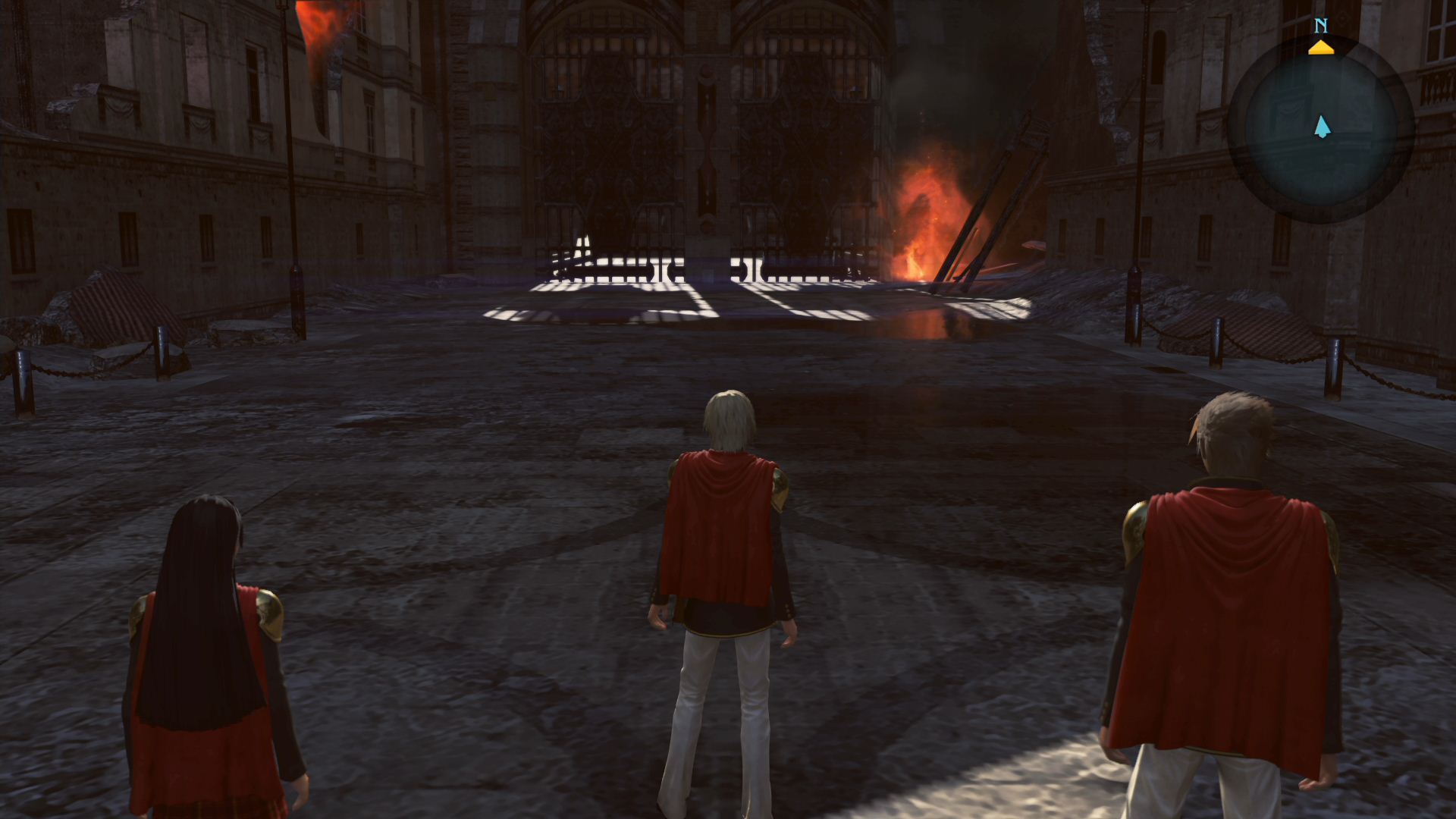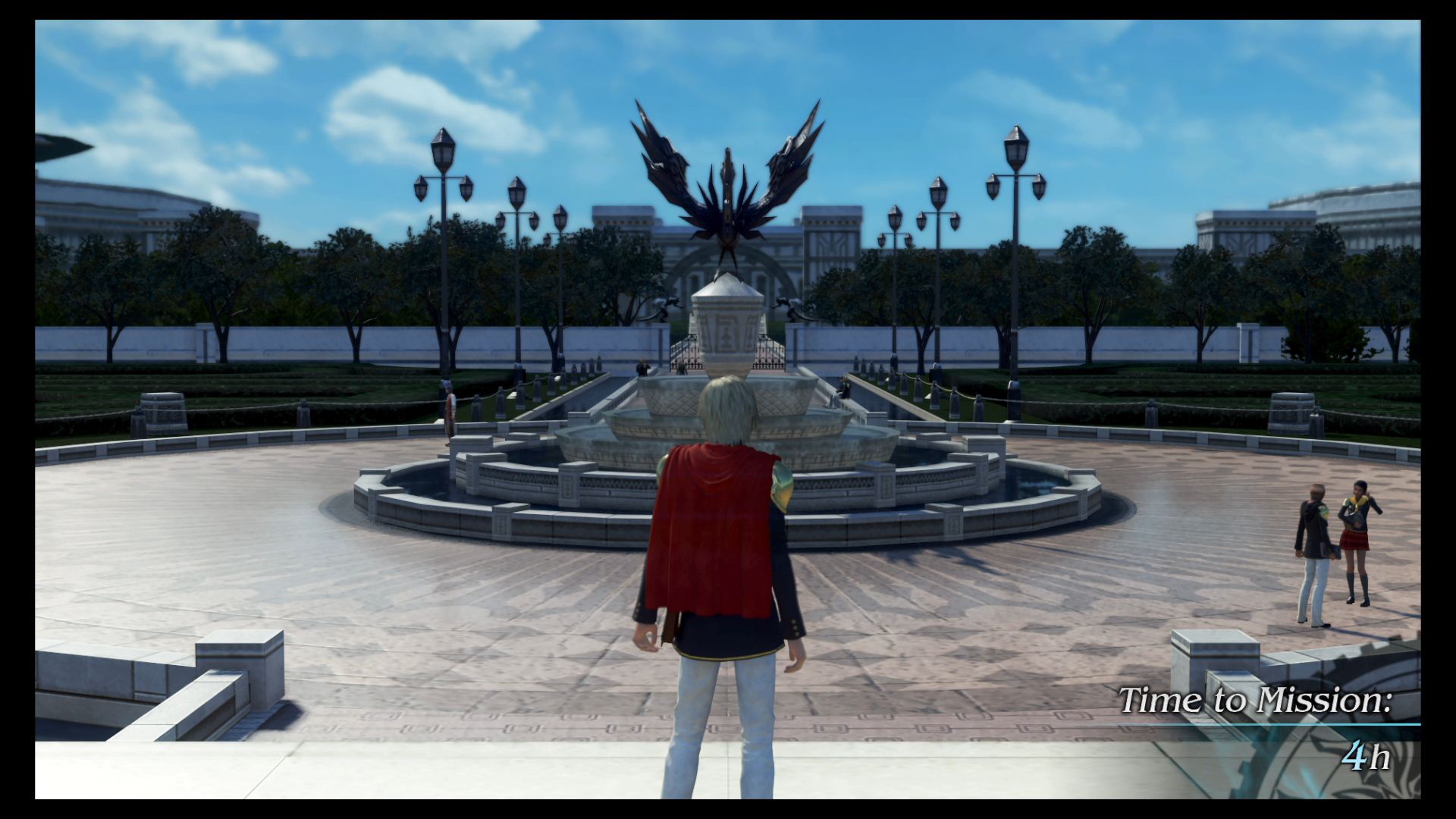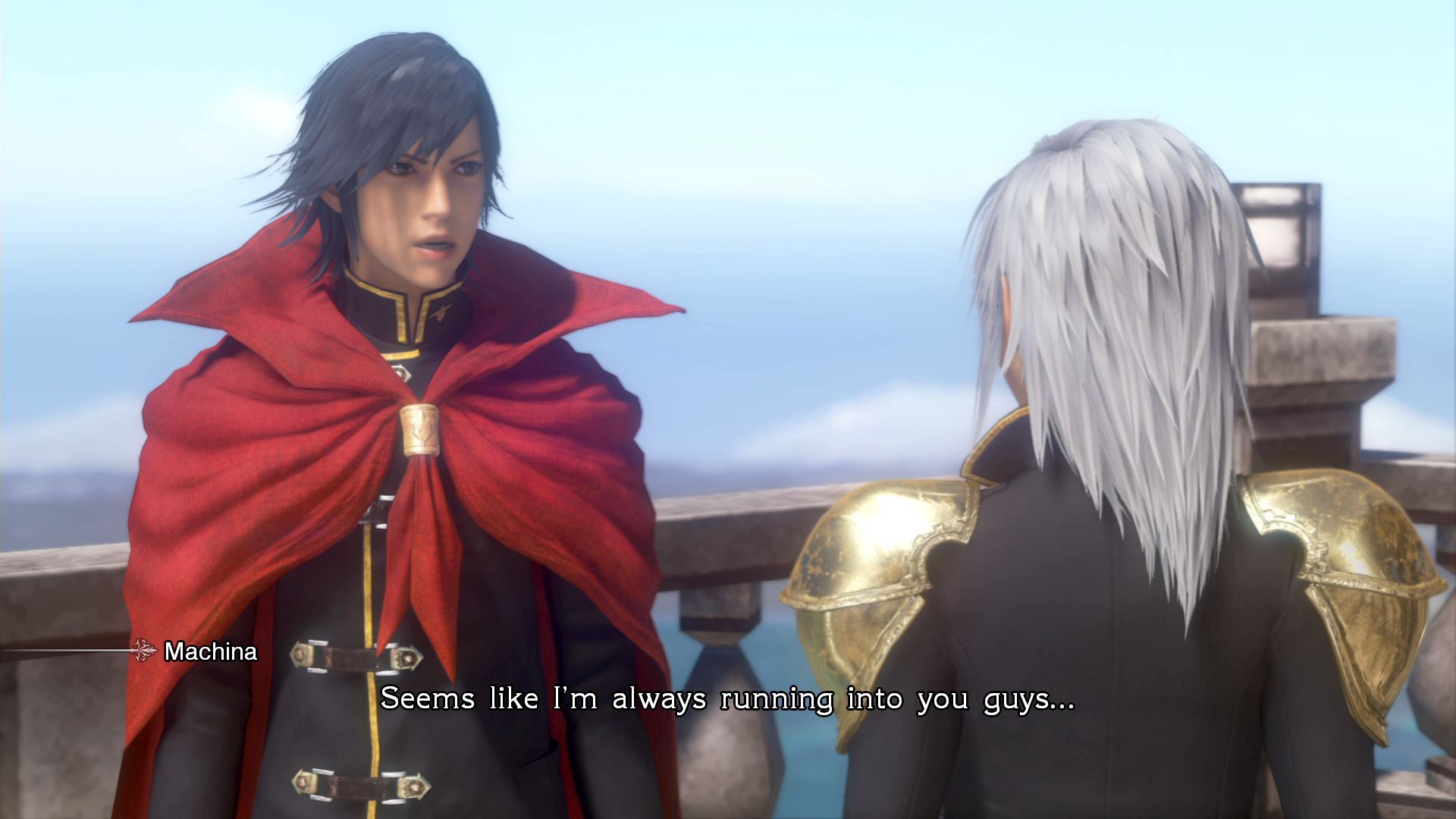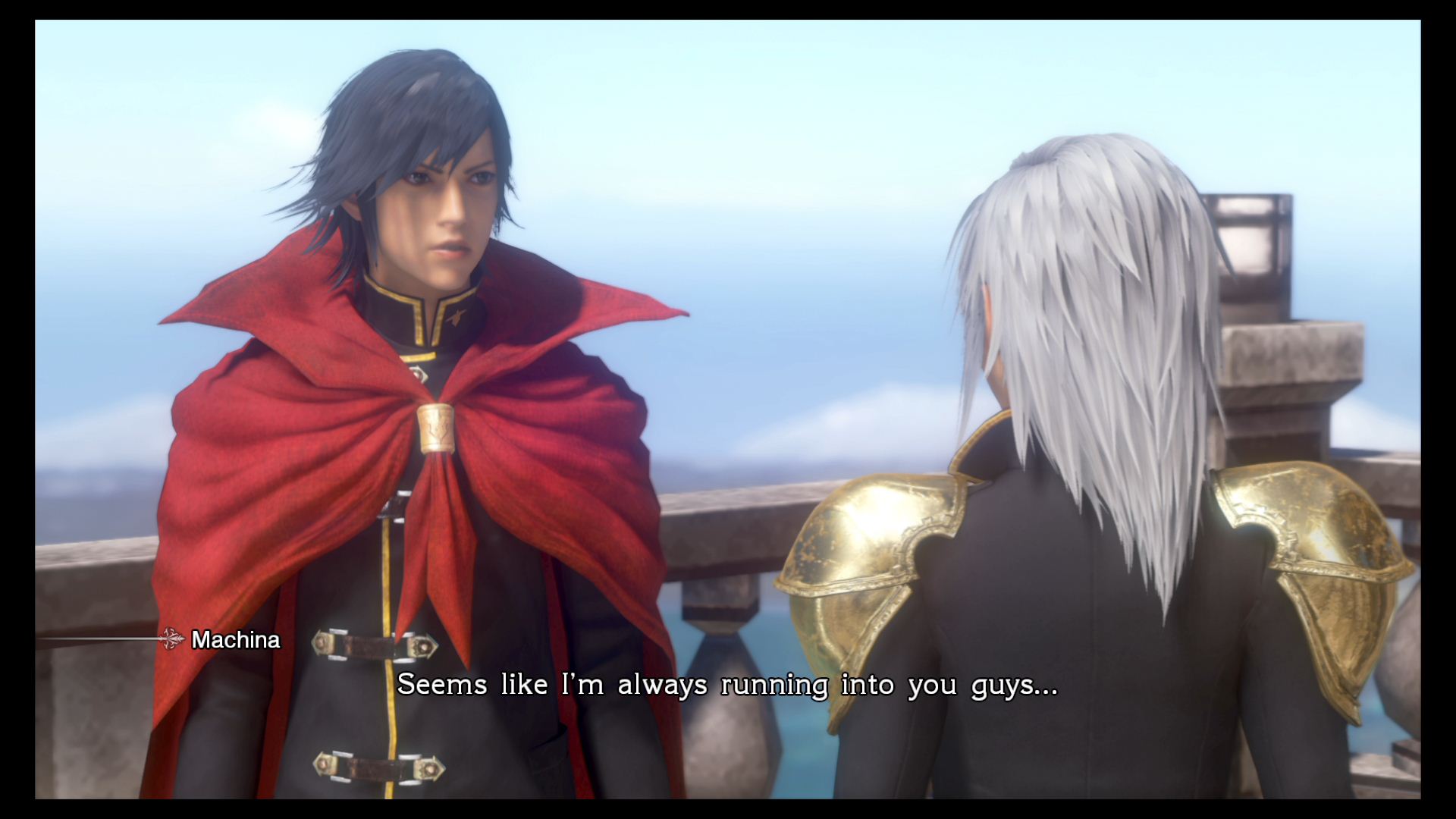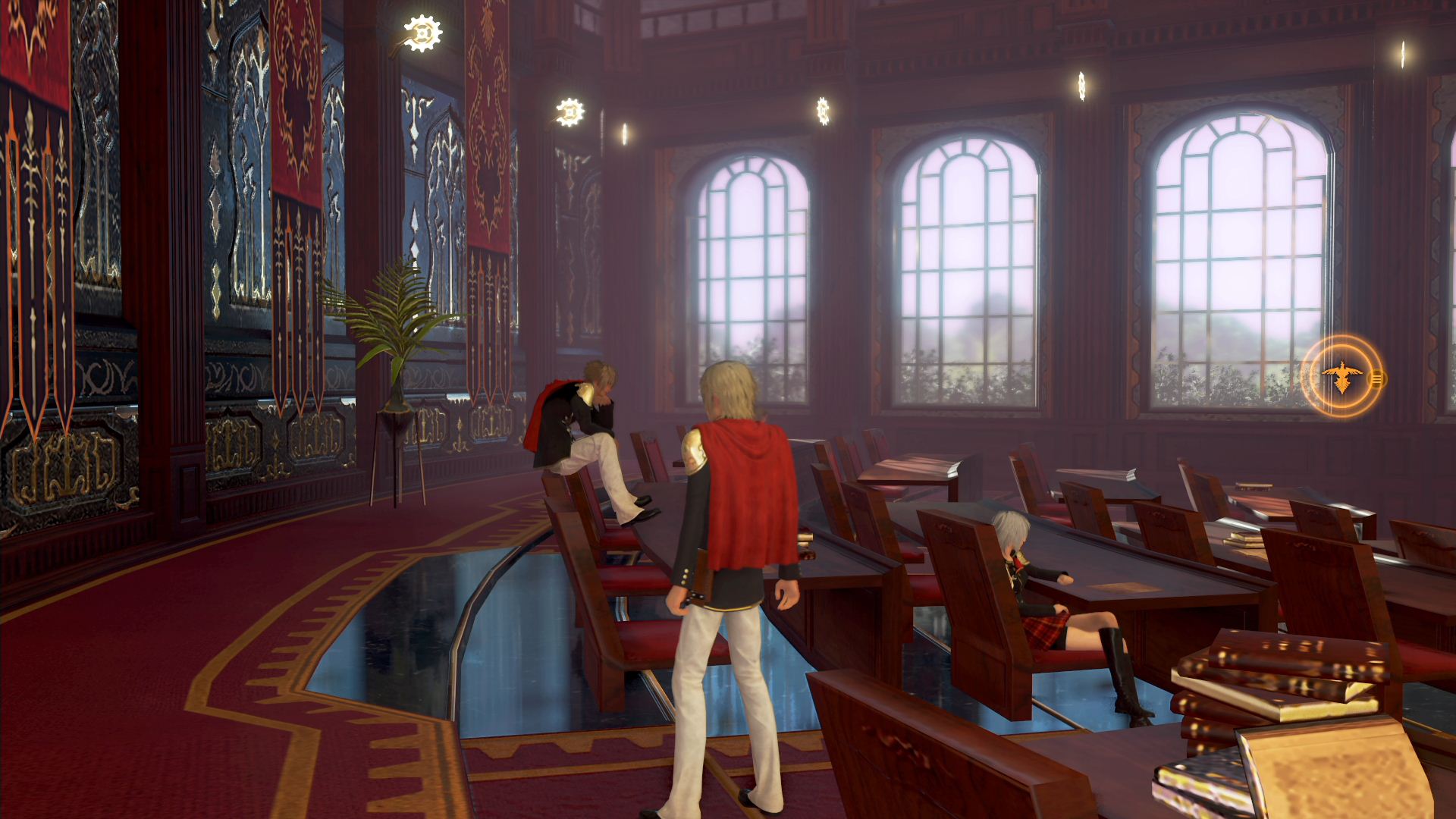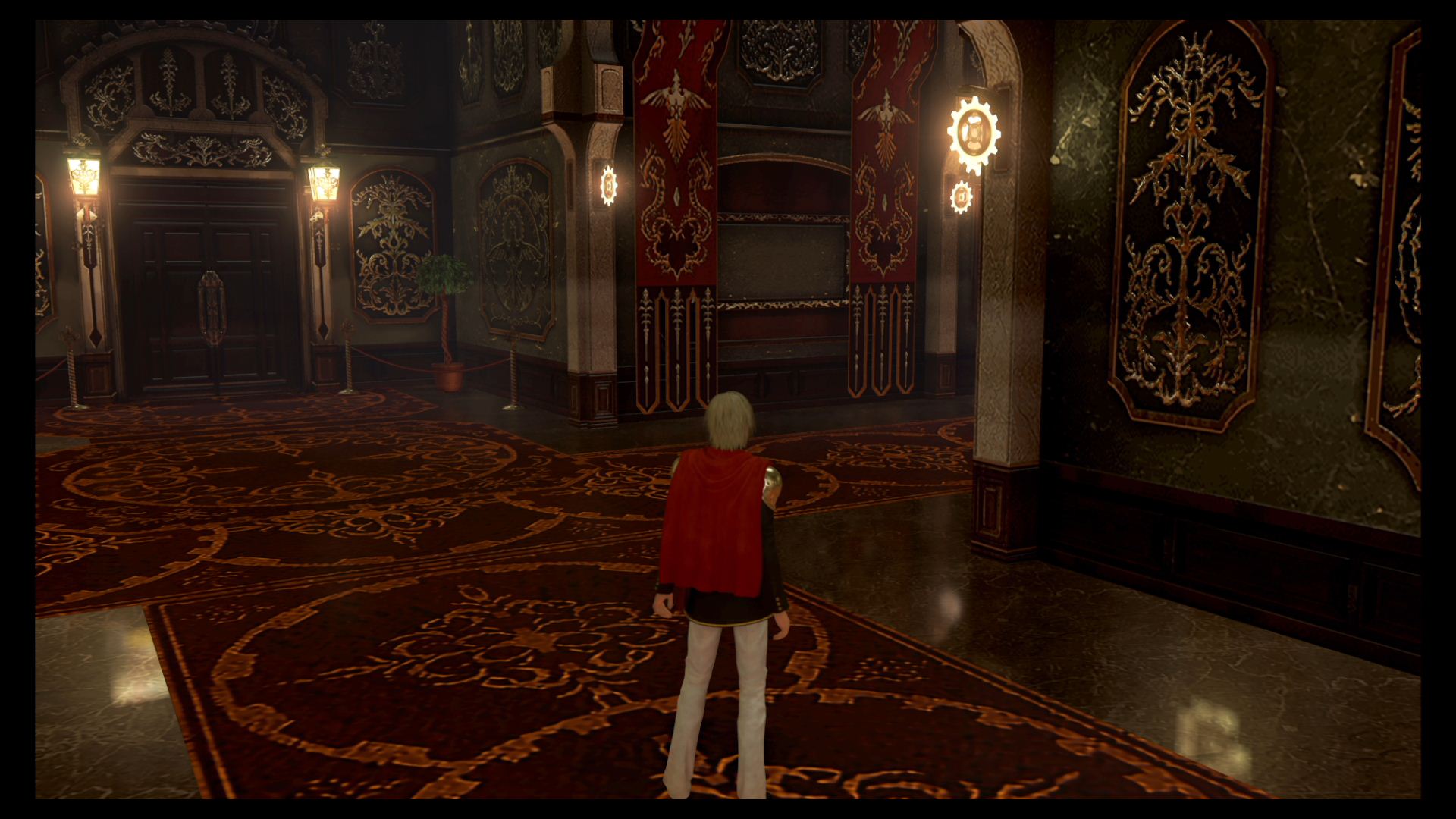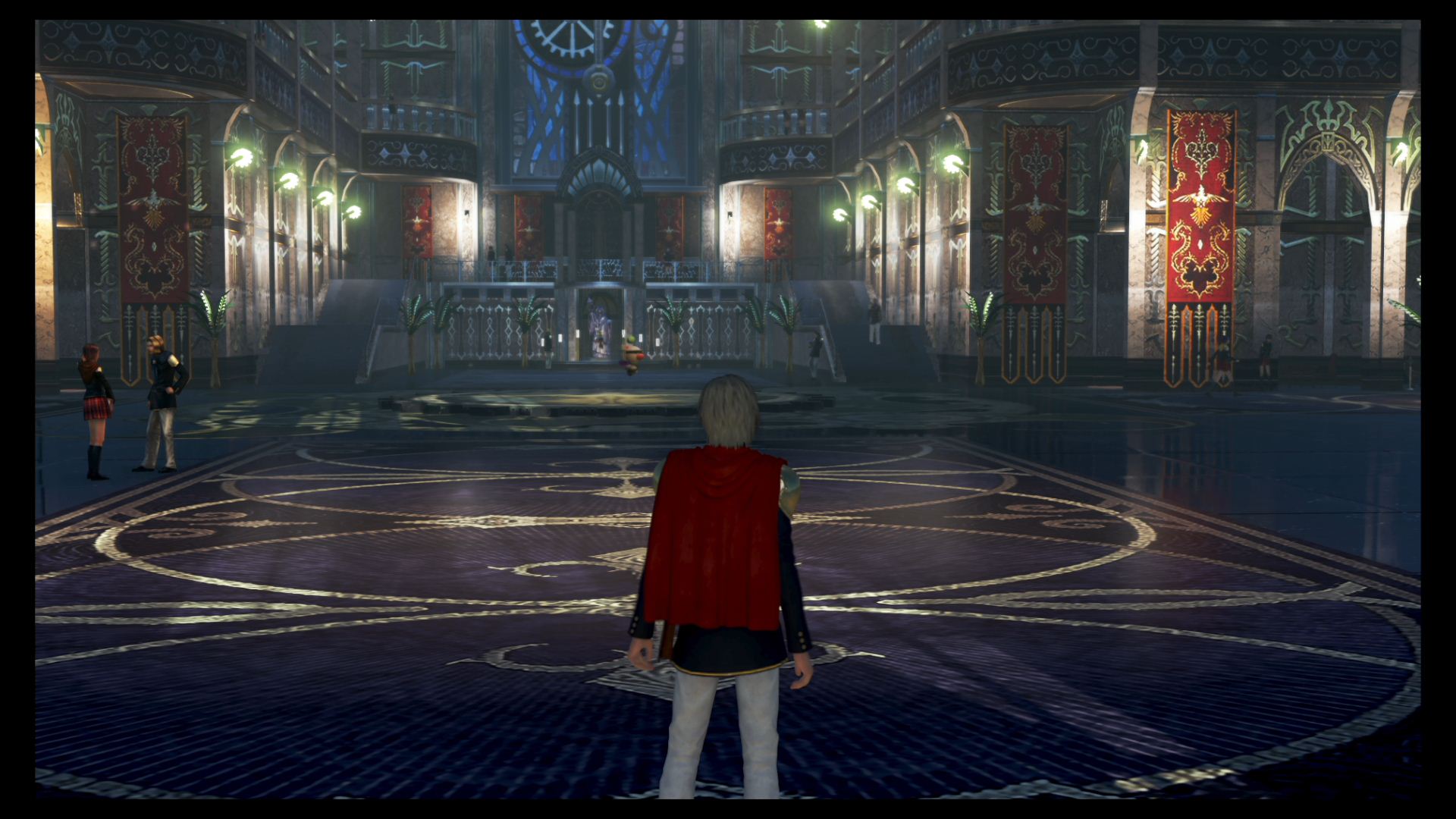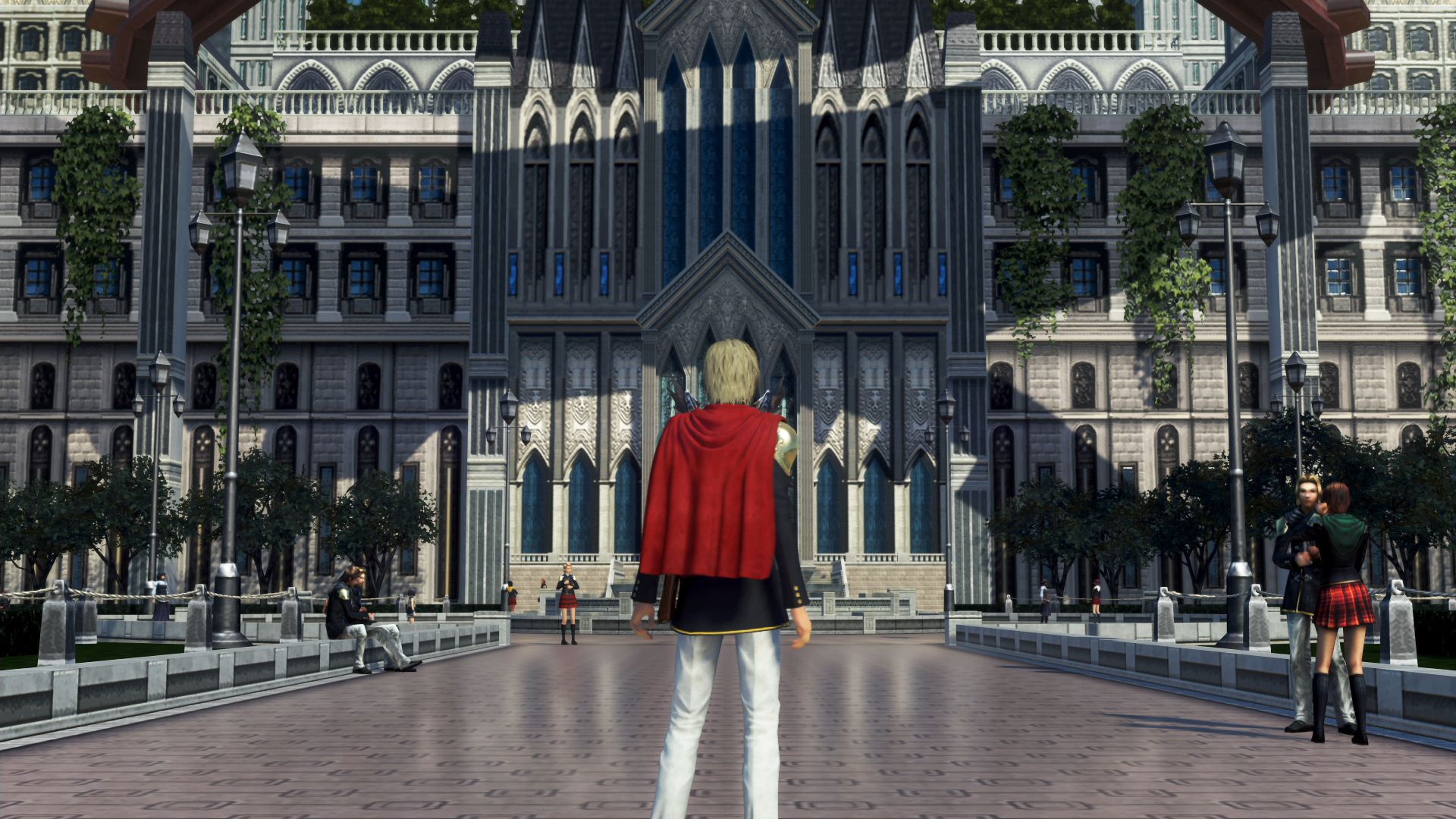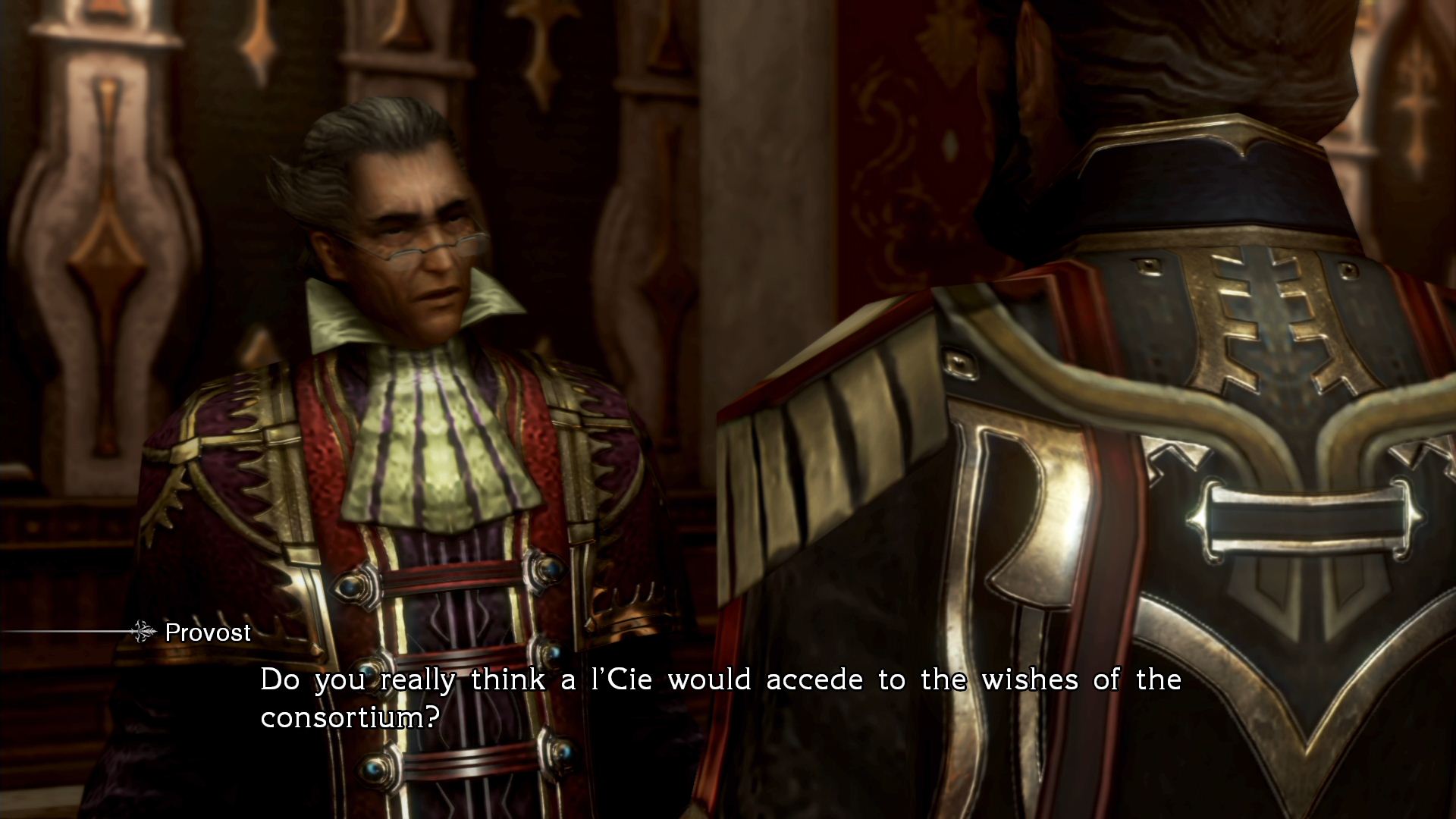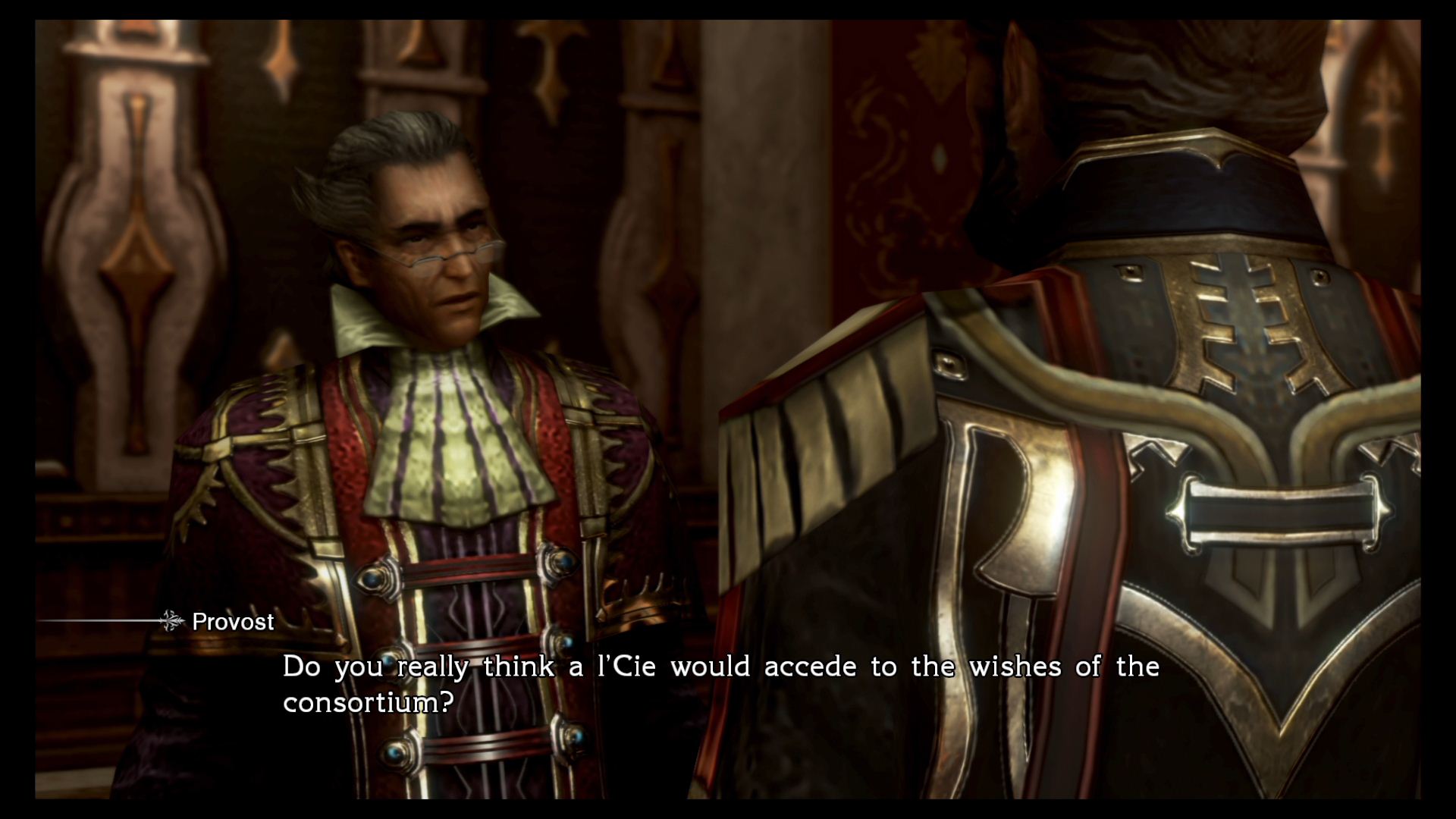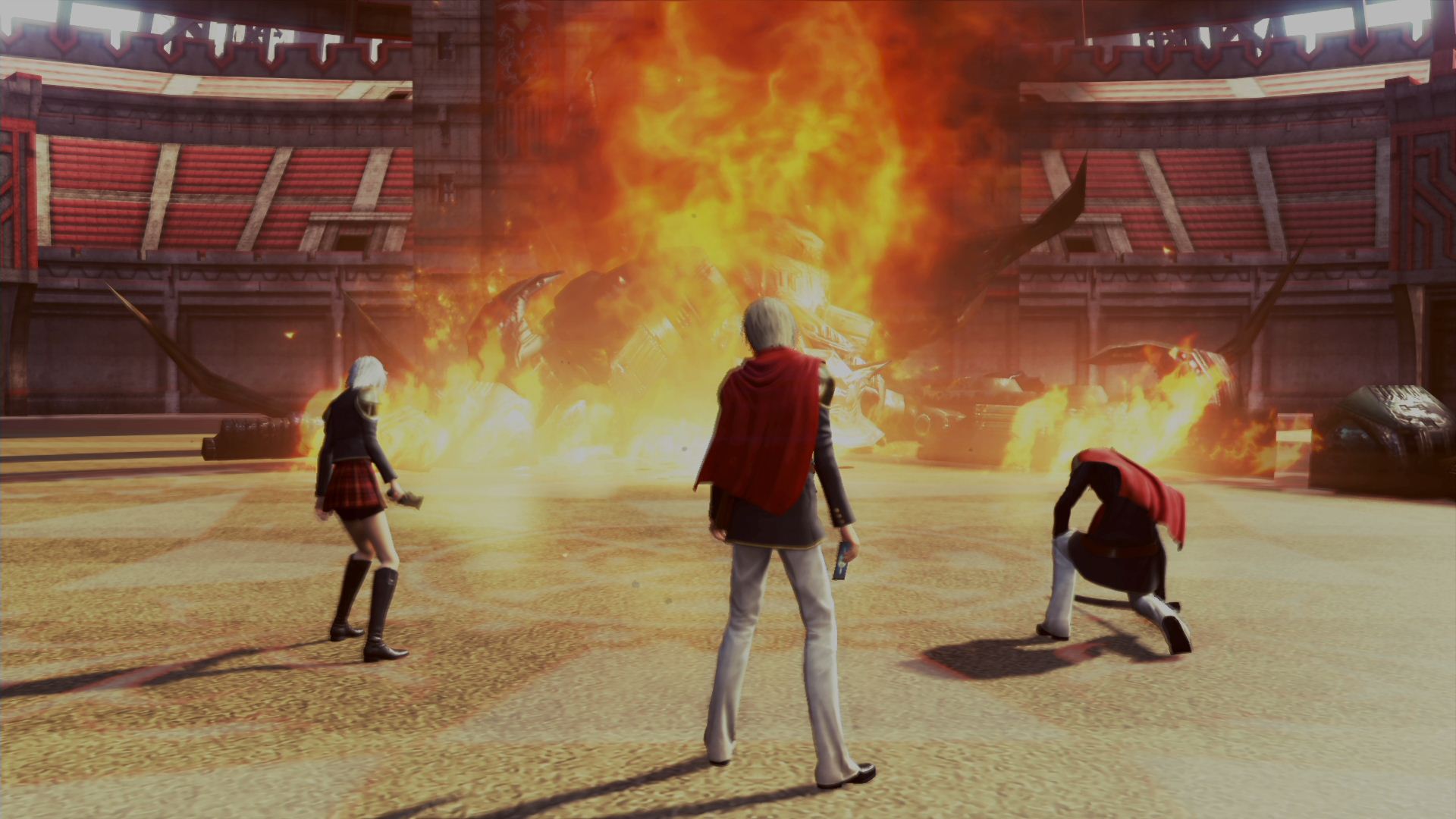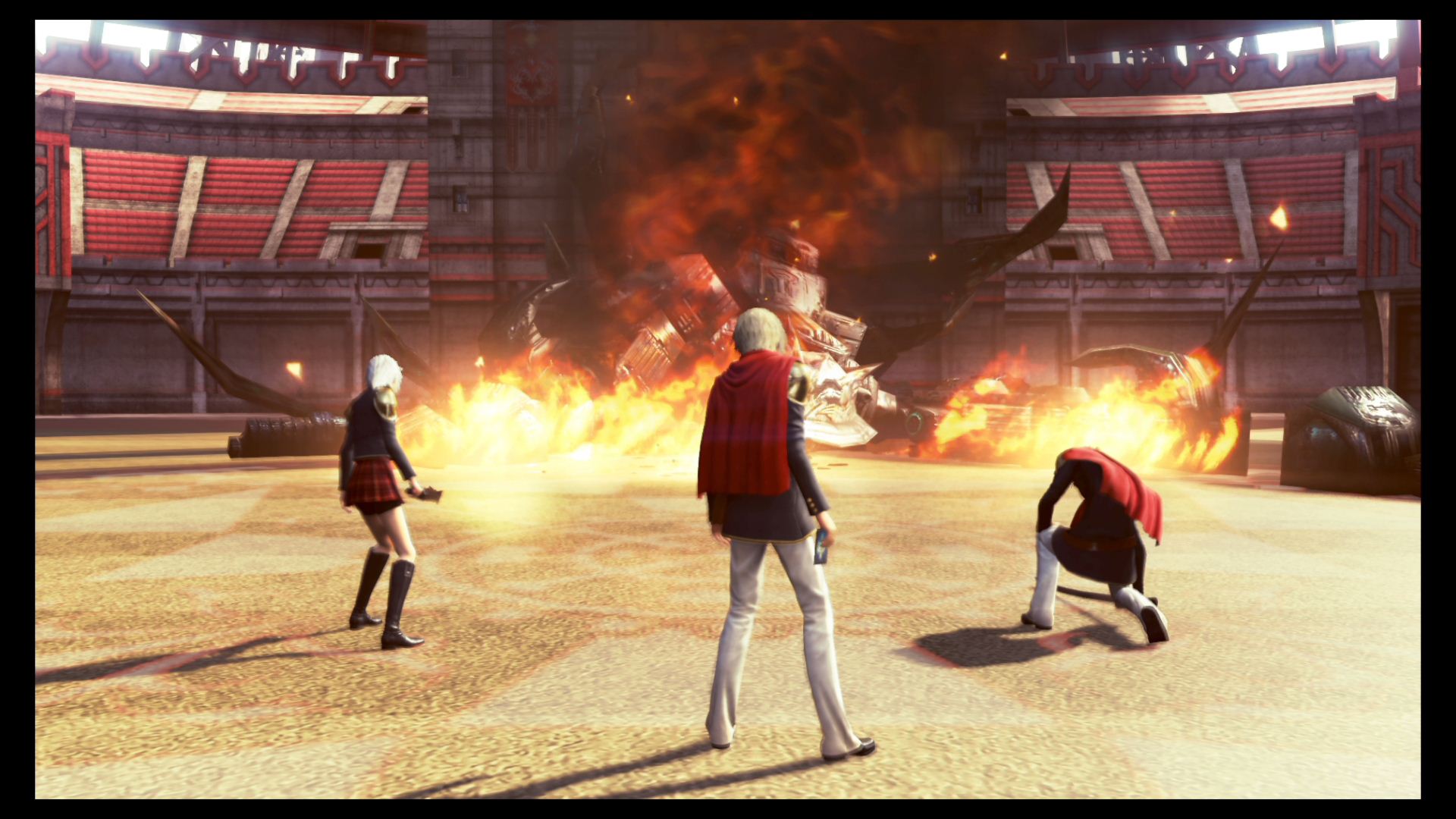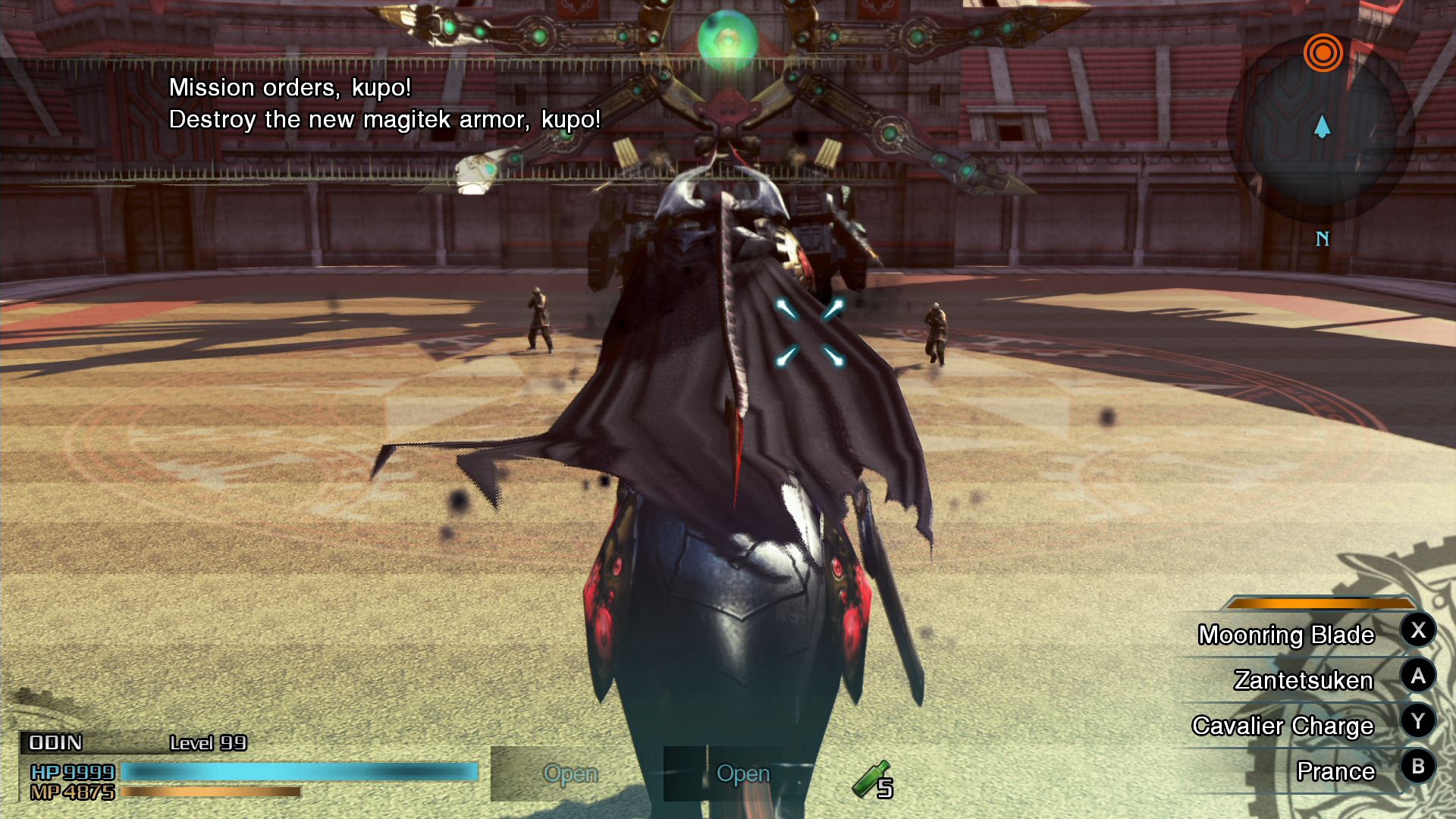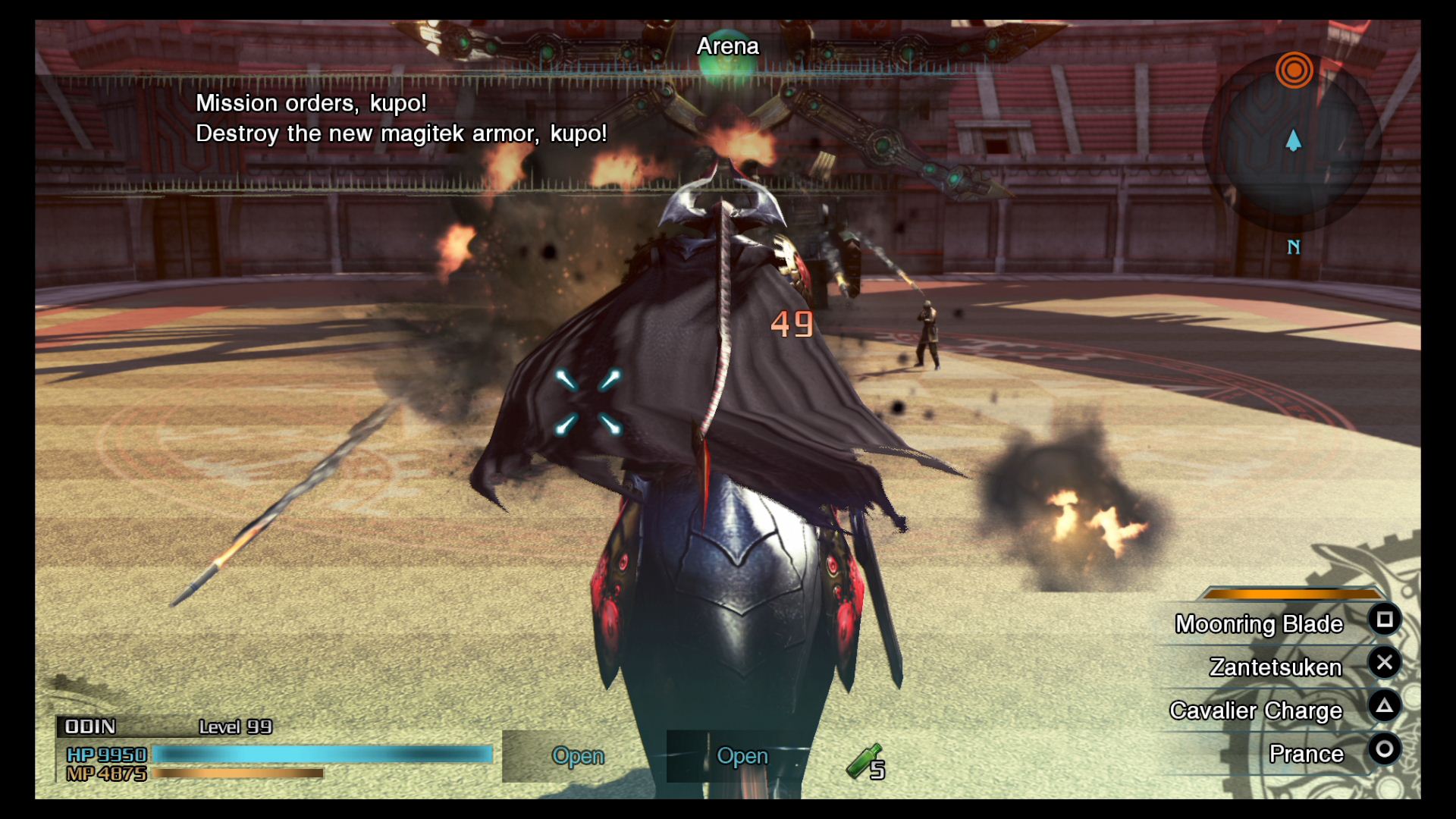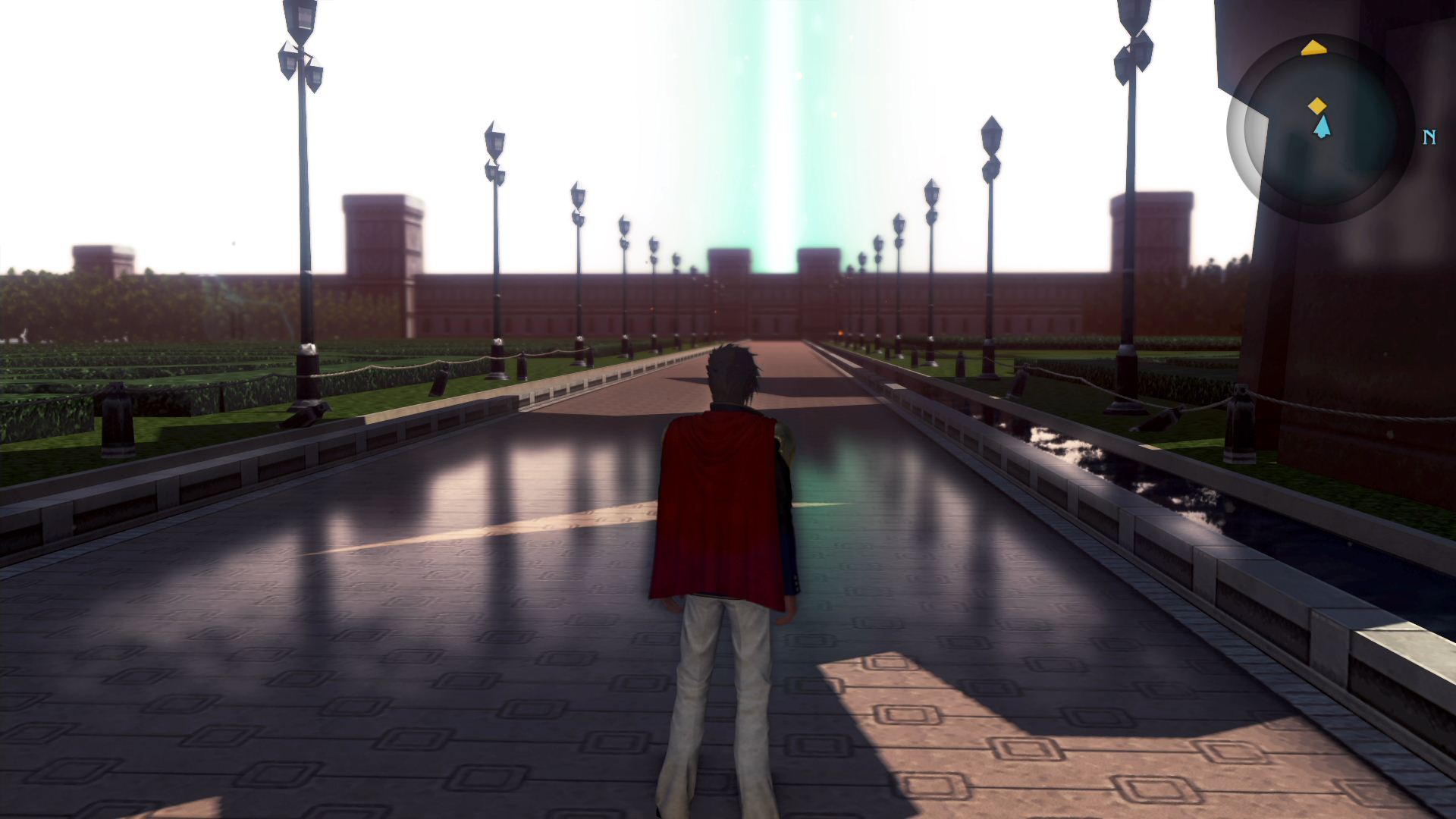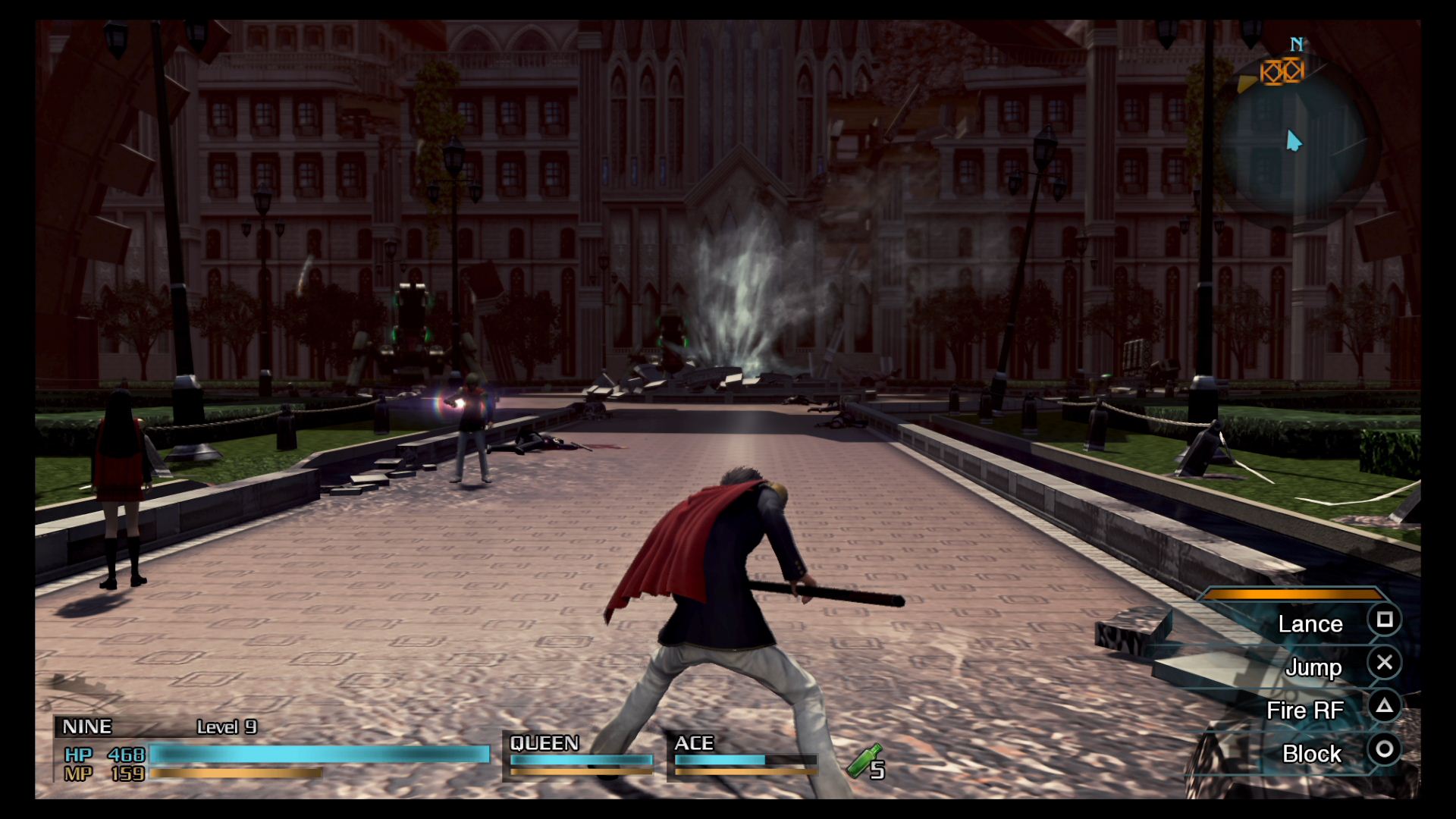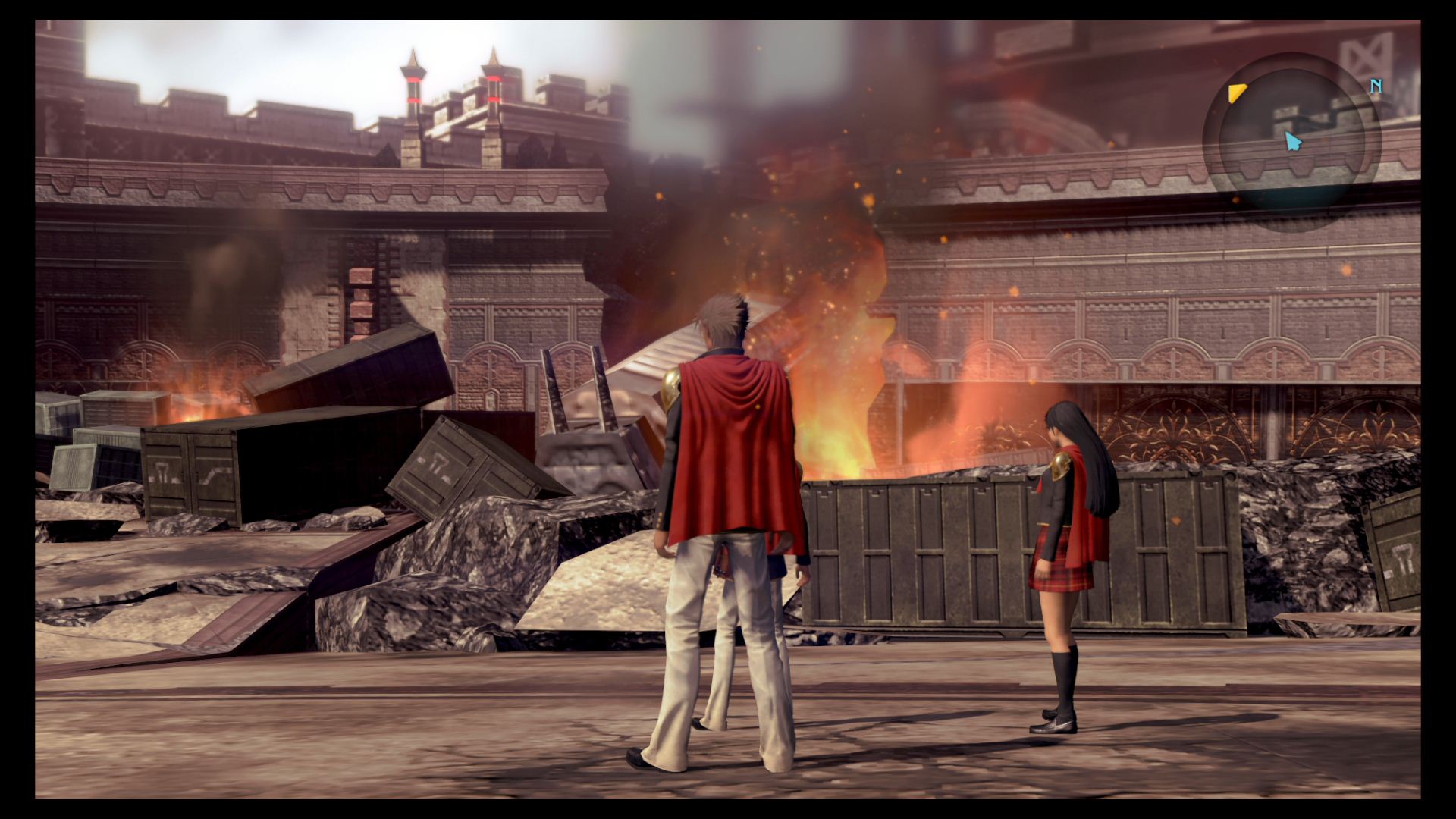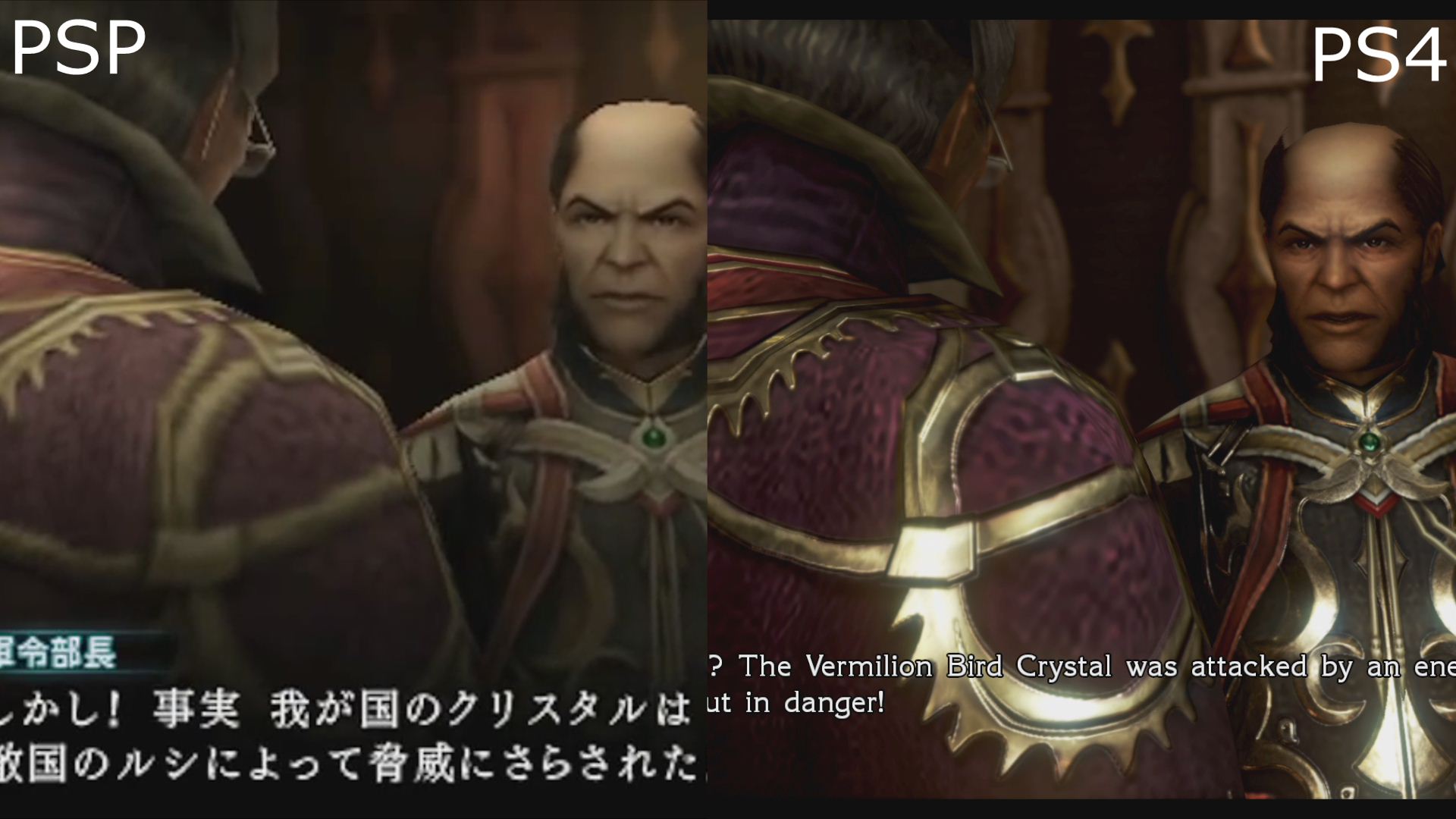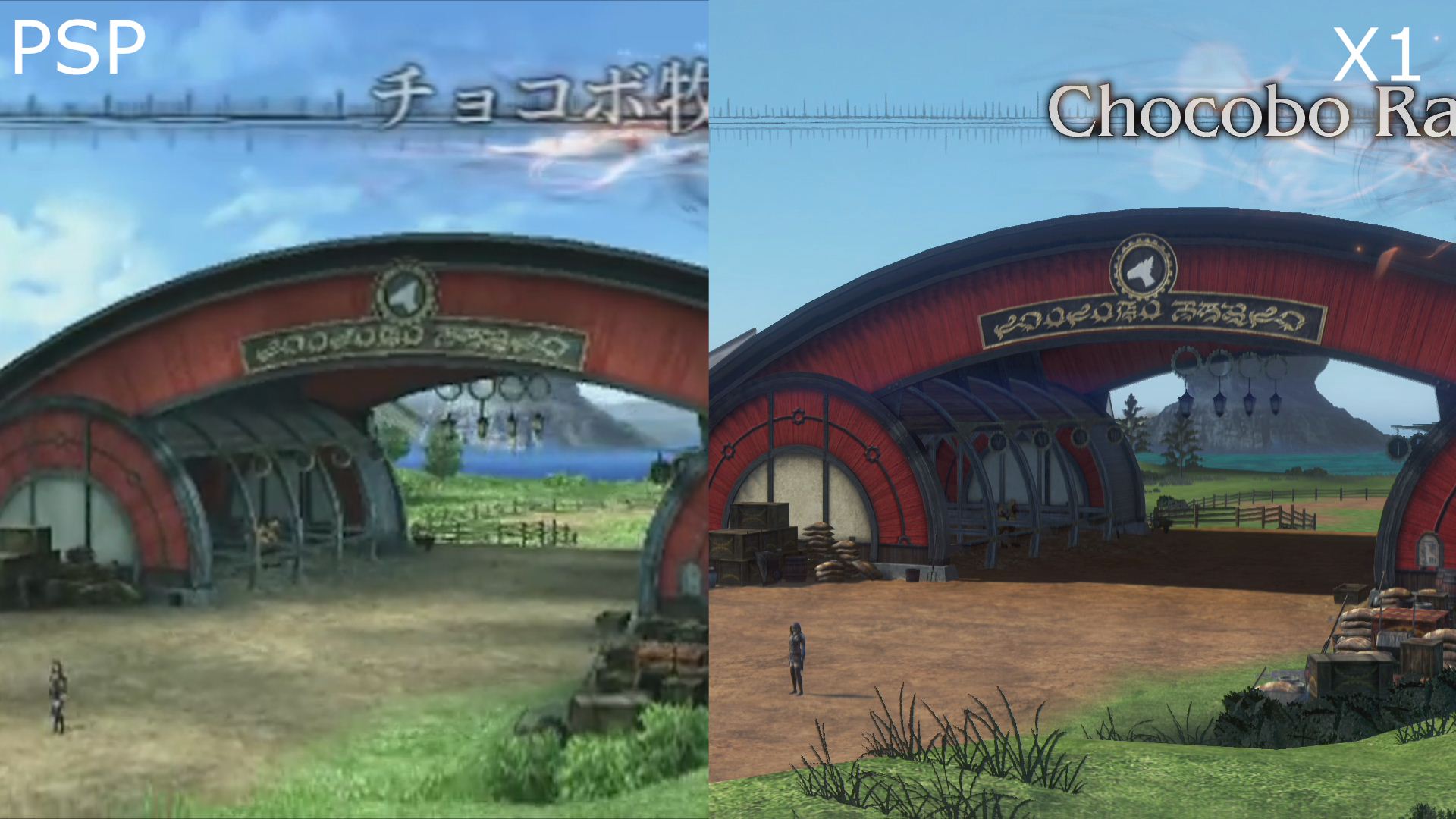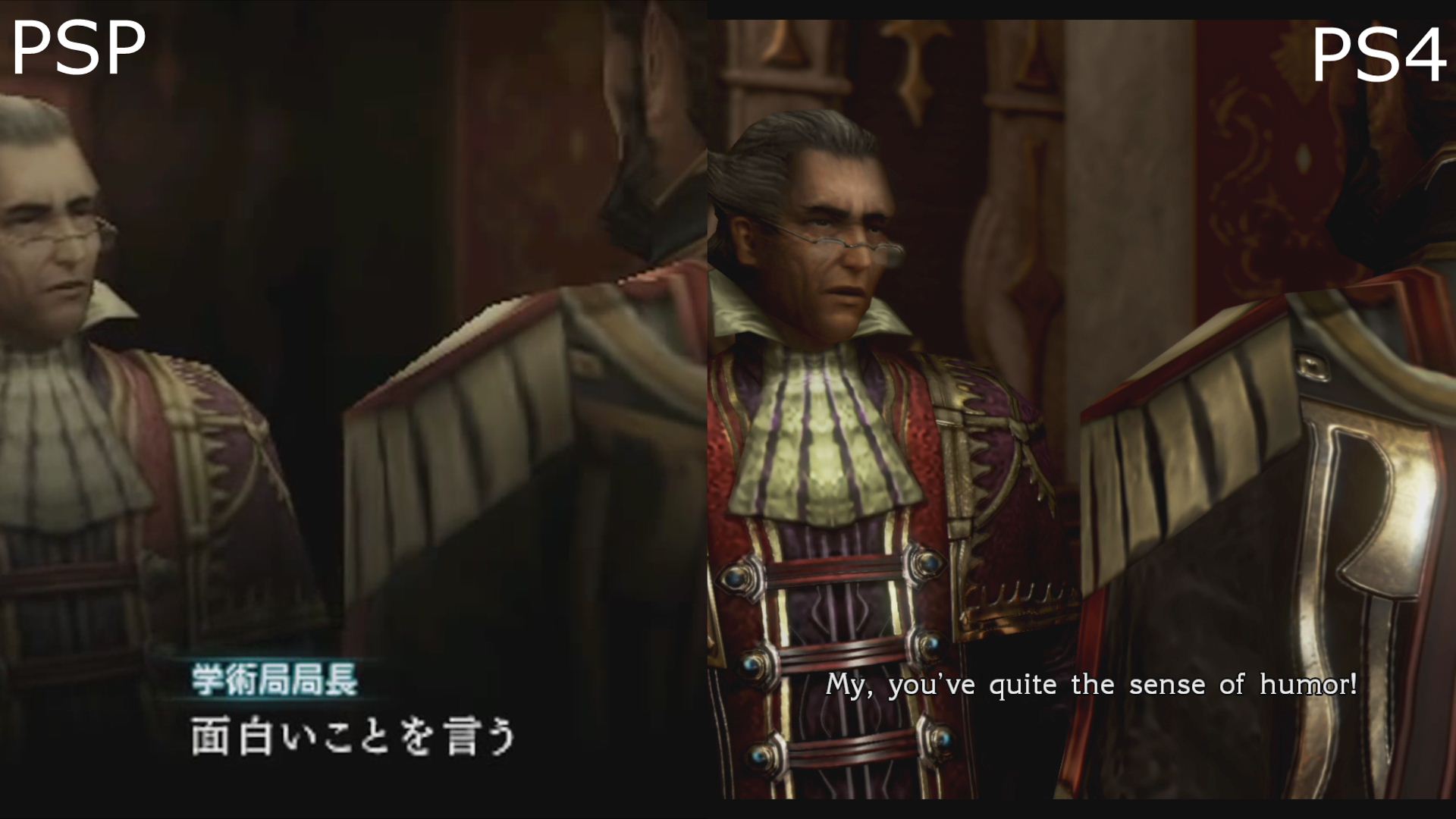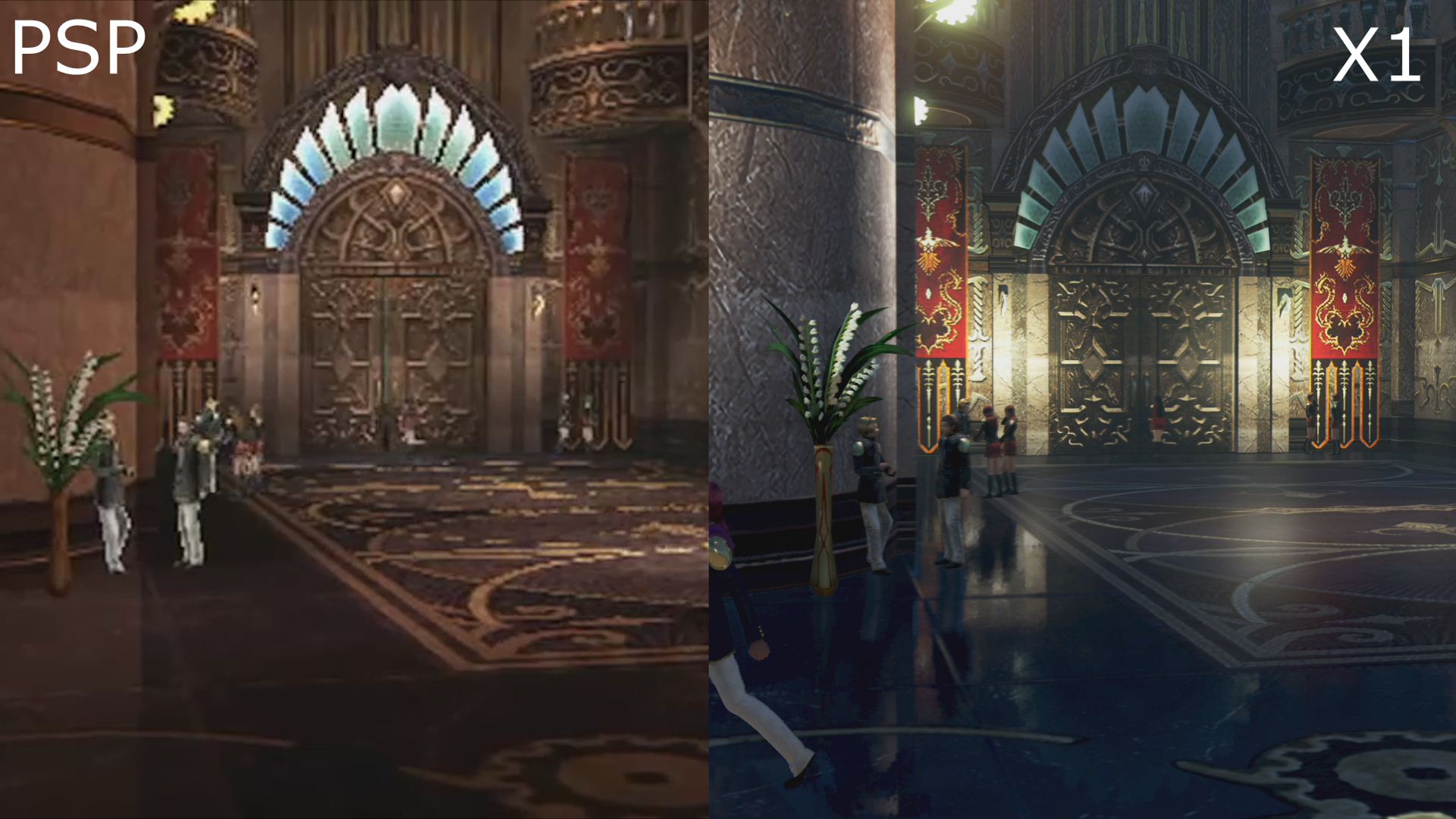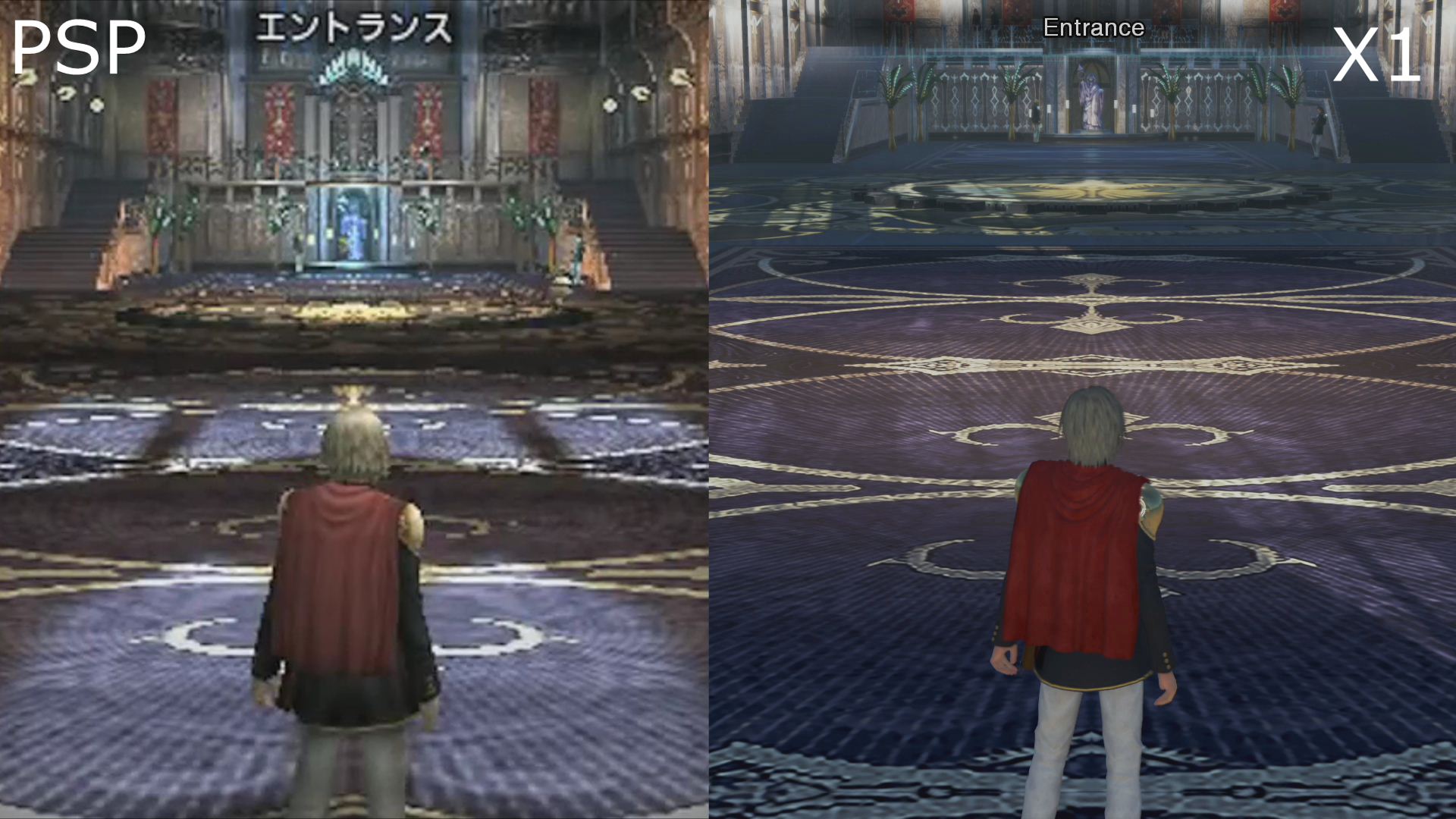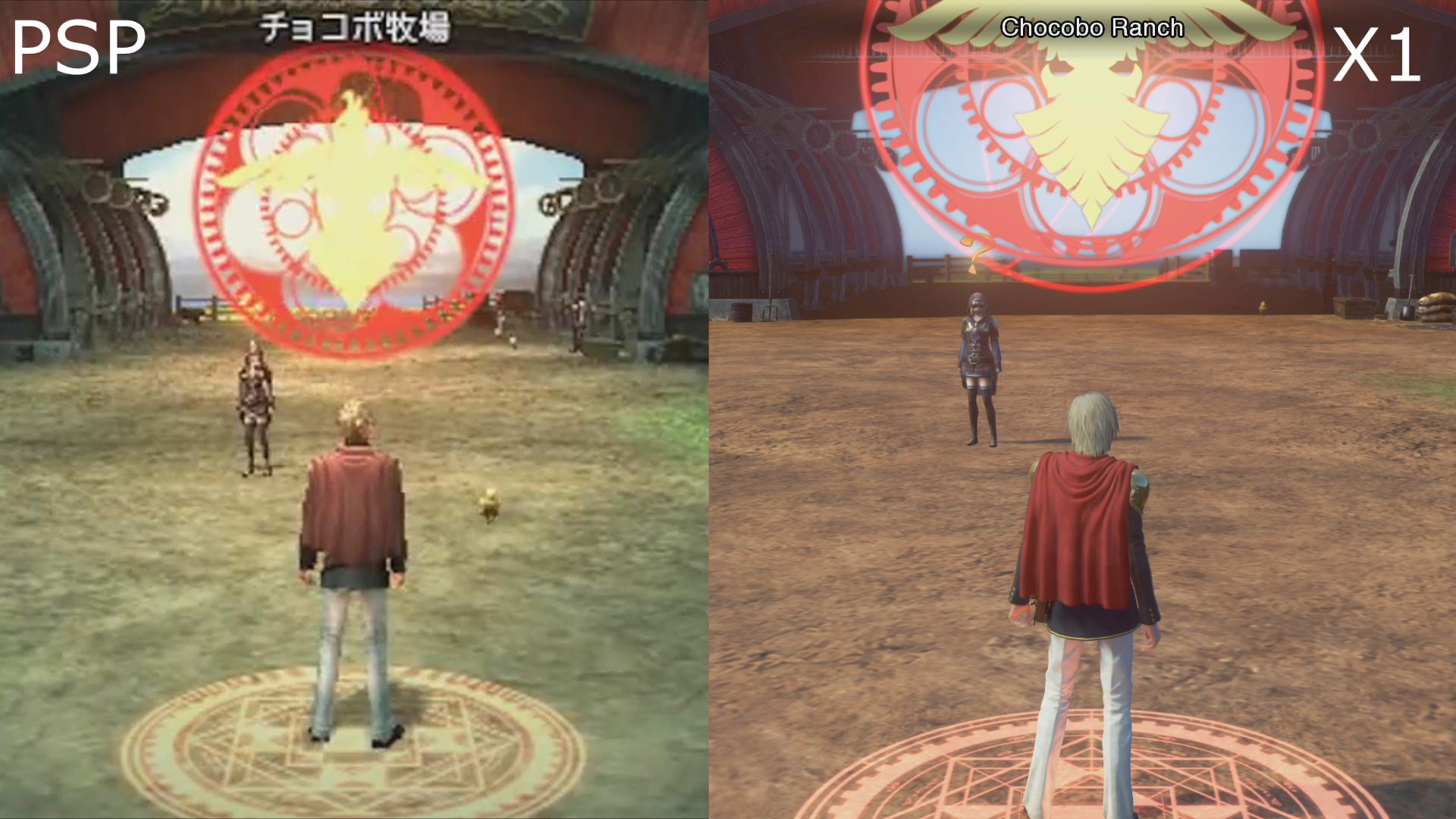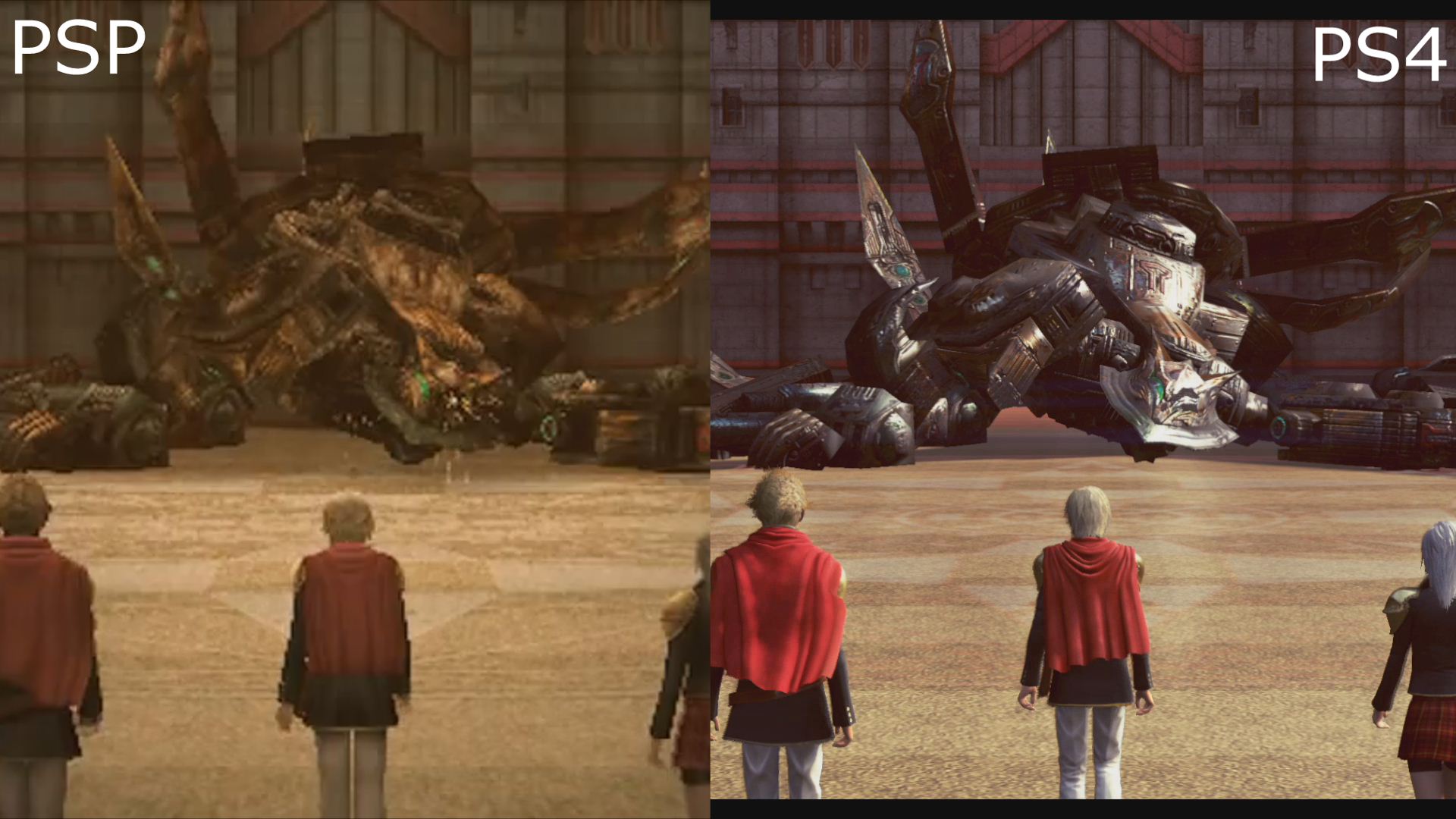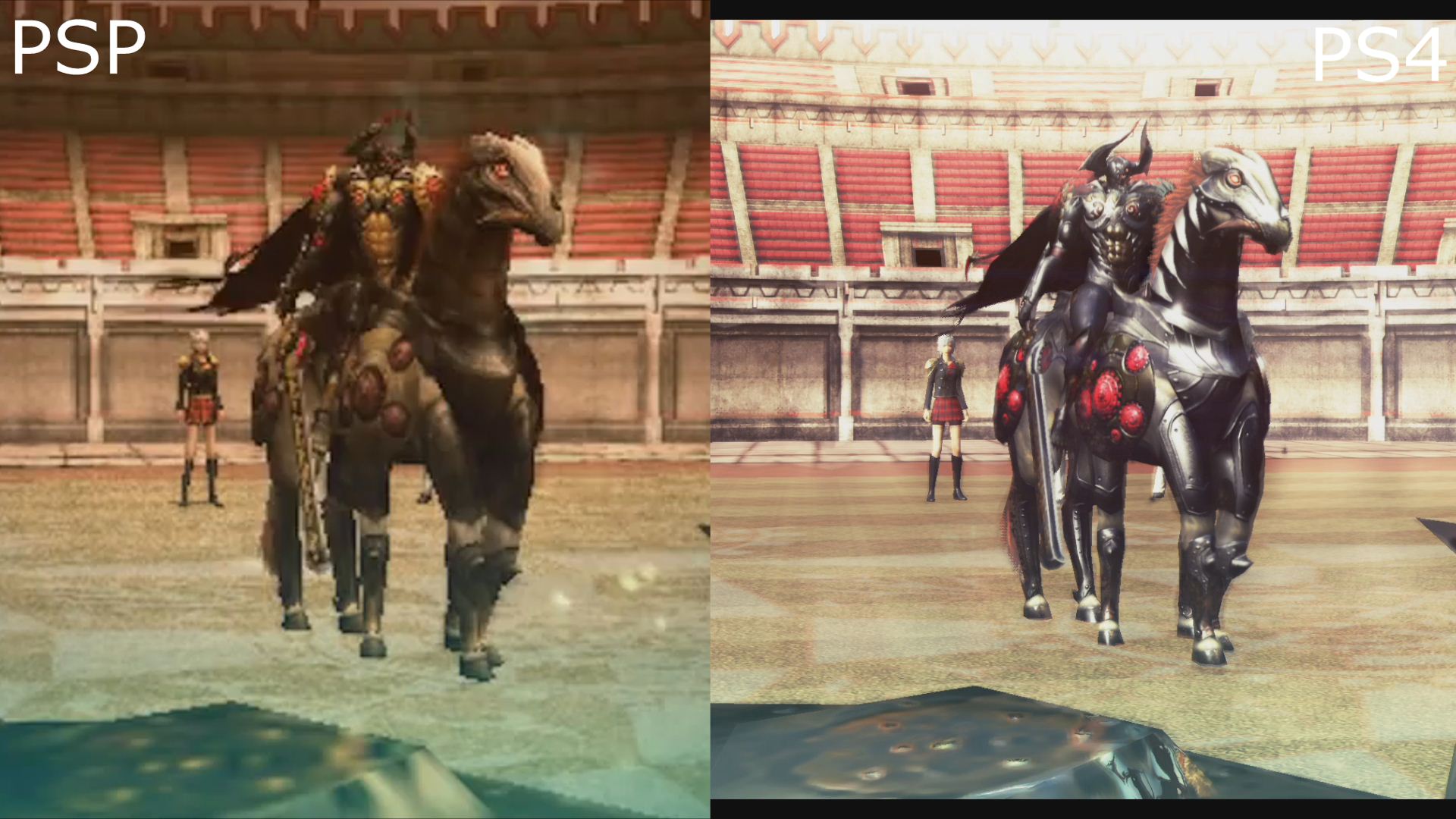
It was a given that if Final Fantasy Type-0 ever came to consoles, it would require the remastered treatment and we don’t mean a simple bump in resolution. Osaka-based developer HexaDrive (which also handled the excellent HD remasters of Zone of the Enders and The Legend of Zelda: The Wind Waker), would have to significantly improve the visuals to a point where the PlayStation Portable title wouldn’t appear rushed. Final Fantasy Type-0 HD is now here but does it prove HexaDrive’s competency in this age of low-effort remasters and borderline ports?
To a large extent, yes. The visuals in Final Fantasy Type-0 HD are a huge improvement both in terms of frame rate and polygon count. HexaDrive actually took the effort to remaster each and every aspect of the game and while some bland textures still exist, especially in specific instances, this isn’t a 2011 portable title by a long shot.
Both the PS4 and Xbox One versions run at native 1920×1080 resolution and a locked 30 frames per second. HexaDrive took a critical decision of not going with 60 frames per second so that they can further improve image quality and add a ton of visual effects that were not present in the original PSP game.
Head to head video comparison between PS4 and Xbox One versions. Select 1080p and 60fps for best possible video quality.
Head to head screenshot comparison between PS4 and Xbox One versions. [The first screen is from Xbox One followed by PS4, followed by Xbox One and so on]
Scalable ambient obscurance is used for ambient occlusion which allows the game to have soft shadows on characters due to the geometry of the surrounding area. Most players won’t notice this effect but its benefits would be clearly visible in titles in Sniper Elite 3 and Zombie Army Trilogy (especially if you toggle it on and off). Final Fantasy Type-0 HD features a cinematic depth of field and lens effects that help give a dynamic feel to the combat. You’ll notice better particle and alpha effects which lead to much better looking spell animations, smoke and fire throughout the game.
Right off the bat, a rather odd visual choice by HexaDrive was to align the colour palette more with Final Fantasy 15. Red hues and shades have seemingly been replaced by golden colours with blue tones added to brighten the scenery. The overall effect is intriguing, especially given the bundling of Final Fantasy 15: Episode Duscae with Type-0 HD. Perhaps the development team wanted the transition between both games to be smoother despite their obvious visual differences? Maybe director Hajime Tabata, who is working on Final Fantasy 15, felt it was the better colour choice? Regardless, it looks good and helps the visuals pop rather nicely. Of course, opinion can greatly differ here as most players who played the game on the PSP might prefer the original’s color palette.
Temporal anti-aliasing is in place, unlike the fast approximate anti-aliasing seen in Final Fantasy 15: Episode Duscae, and while it does help eliminate a fair number of jaggies, the level of detail suffers somewhat due to the lack of anisotropic filtering. While several current gen titles employ some form of anisotropic filtering (at least, on the Xbox One if not on both platforms), Final Fantasy Type-0 HD makes use of trilinear filtering. As a result, the ground textures come off as low resolution and blurry at times.
Head to head video comparison between PSP, PS4 and Xbox One versions showcasing the remaster’s improvements. Select 1080p and 60fps for best possible video quality.
Head to head screenshot comparison between PSP, PS4 and Xbox One versions.
Then there’s the blur which aids in the cinematic nature of combat but feels overdone at times. The excessive amounts of blur sometimes lead to the camera going haywire. While Square Enix should be commended for developing the camera system from scratch since the original system wouldn’t facilitate a larger screen, it still has its issues.
Speaking about other additions made to the remaster, HexaDrive has improved the lighting and re-rendered in-game assets for the PS4 and Xbox One using the same DirectX 11 tech used in FF15. The technology also allows for post-effect filters and HDR as compared to the PSP versions LDR lighting. While screen space reflections have been added in, there’s a fair bit of dithering to be seen. It’s not horrible but it is less than stellar.
Physics-based rendering is also in effect, even though it is limited, and the good news is that it adds deferred rendering, lens flare and physics-based depth of field to many of the objects. CookTorrance implementation allows for specular highlighting. Specular highlighting is essentially used to provide visual cues for objects with regards to the light sources present. In Final Fantasy Type-0 HD, it provides more well-rounded lighting to the game overall. Other neat additions include bloom and background blur.
The question of course remains: How far did HexaDrive’s remastering of the original PSP title go? As stated above, some characters and locations come off far better than others in the transition to Xbox One and PS4. For instance, when exploring Akademeia, the Kingdom of Concordia and Ingram, there’s plenty of detail in the surroundings. By comparison, Suzaku’s Plains look dull and lifeless. It could be a case of HexaDrive emphasizing the architecture of the game more than anything else (which isn’t necessarily unheard of in Final Fantasy games – go back and compare the sheer amount of detail in Final Fantasy 12’s cities compared to its open field environments). The lack of improved foliage effects from the base PSP version serve as further proof for the same.
It’s the characters which have benefited the most from the remastering though. For several great examples of how the lighting reacts with different objects like metallic surfaces, check out the differences between mechs like Great Malboro, Prometheus, Tempest Drake, Wendigo and Astral Drake. The characters themselves come off as better looking too with improved cloth and hair rendering, dynamic armour lighting and improved modelling. Even the Chocobo look better in terms of fur detailing.
Animation has been significantly improved and the overall movement and speed of characters feels better overall. It’s a shame that the camera system tends to muddle some of those improvements. It should also be noted that the original CG cut scenes haven’t been reworked and instead appear to be up-scaled to 1080p.
One shouldn’t have expected the world from a current gen remaster of a PlayStation Portable title. In terms of content, there isn’t much difference from the original except for a lower difficulty setting. Even the number of NPCs hasn’t been increased and there are many times throughout where Final Fantasy Type-0 HD can come across as visually bland and unappealing. Anisotropic filtering could have improved the texture work significantly but alas, it’s absent. If you’ve played through the original obsessively, then there may not be much to draw you in gameplay-wise.
However, Final Fantasy Type-0 HD still stands out as a strong remaster, especially when compared to games like Saints Row IV: Re-Elected which simply up-scaled the original’s resolution and nothing else. This isn’t like DmC: Definitive Edition where the developer had a strong base to further build off of – this is a portable title making the leap current gen consoles that necessitated significant reworking in several key areas. If you’ve been pining for a good Final Fantasy game or have been curious of Final Fantasy Type-0 since the beginning, the remaster is worth a look on either console.
Note: Performance analysis was carried out by GamingBolt’s Bill Smith.








